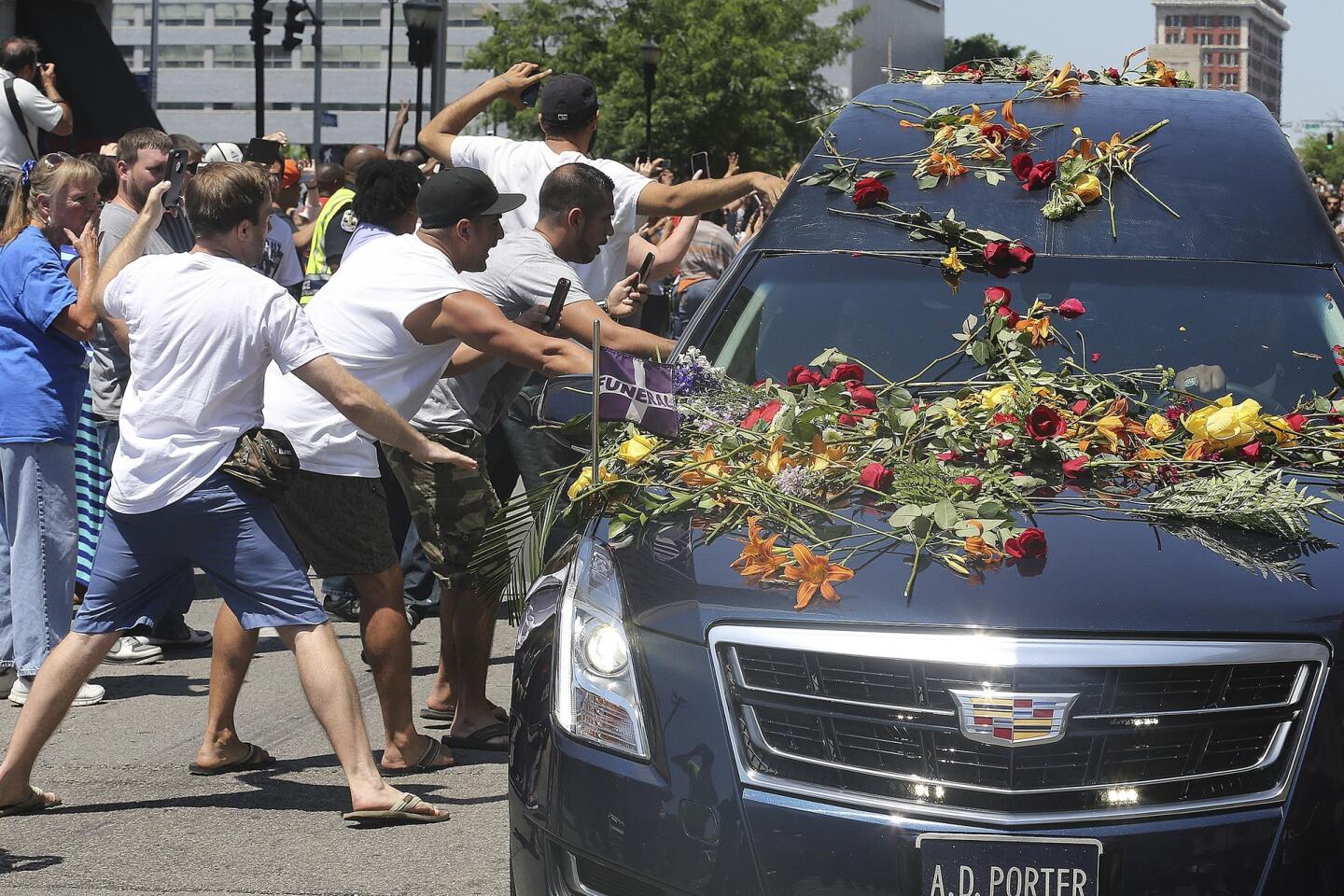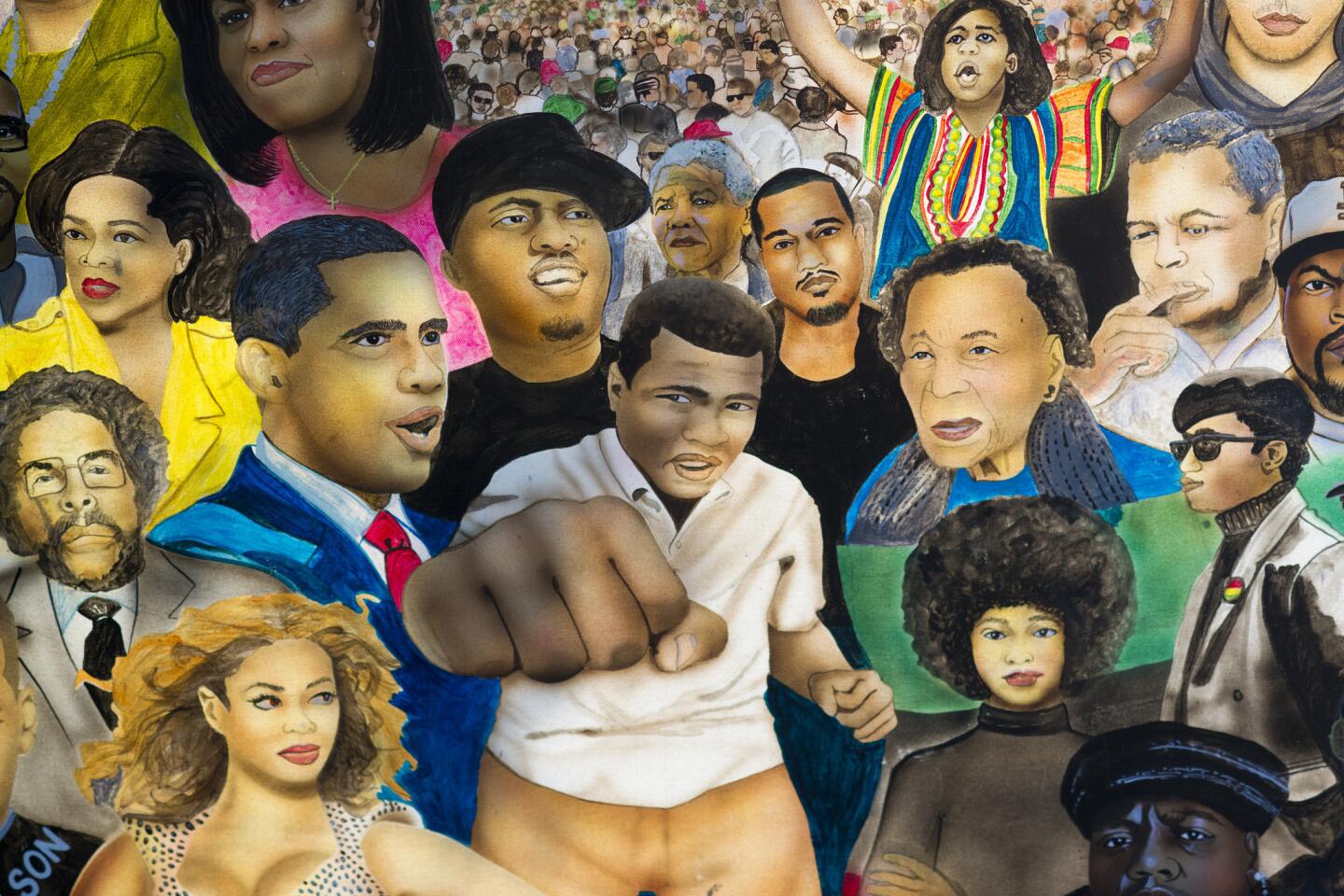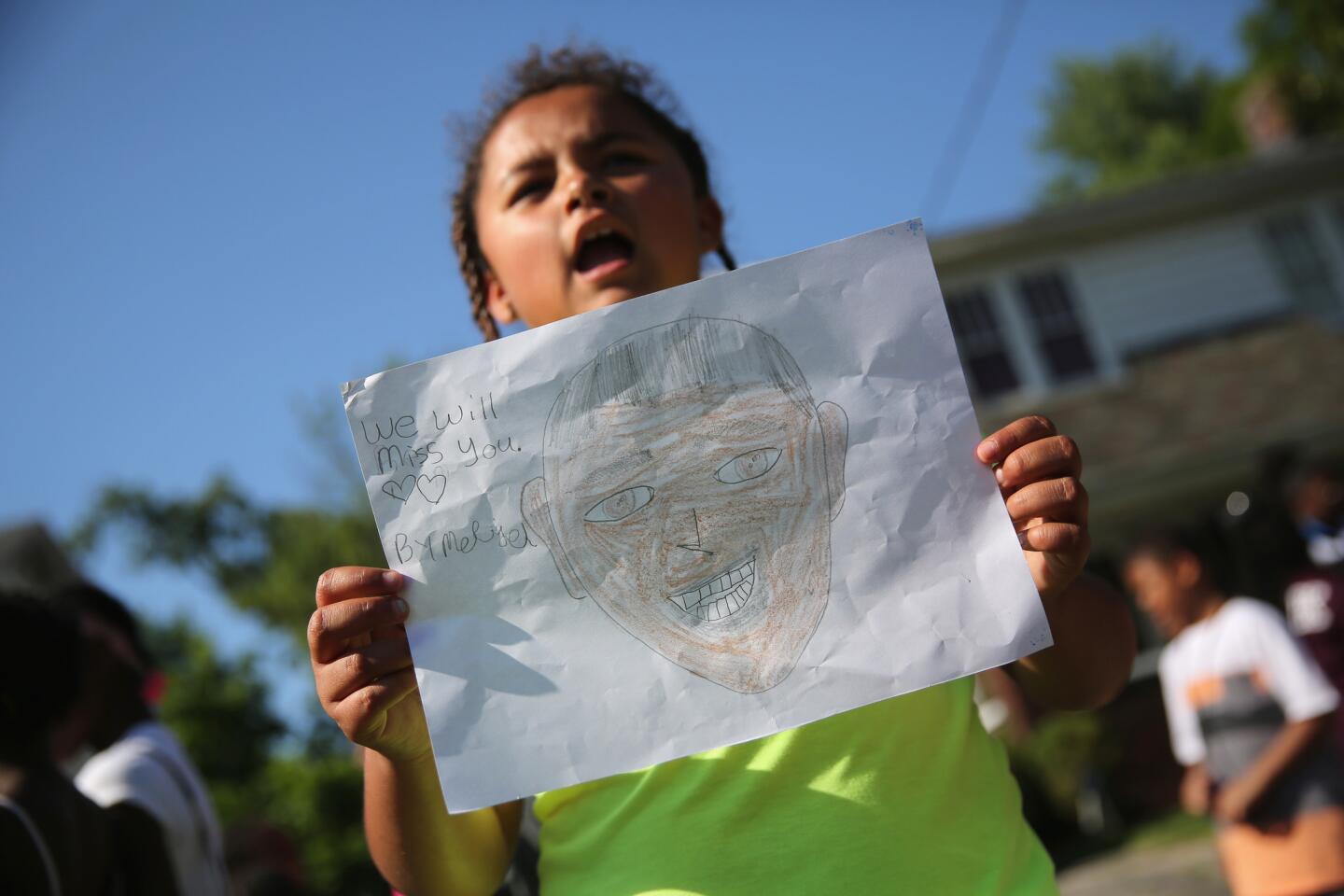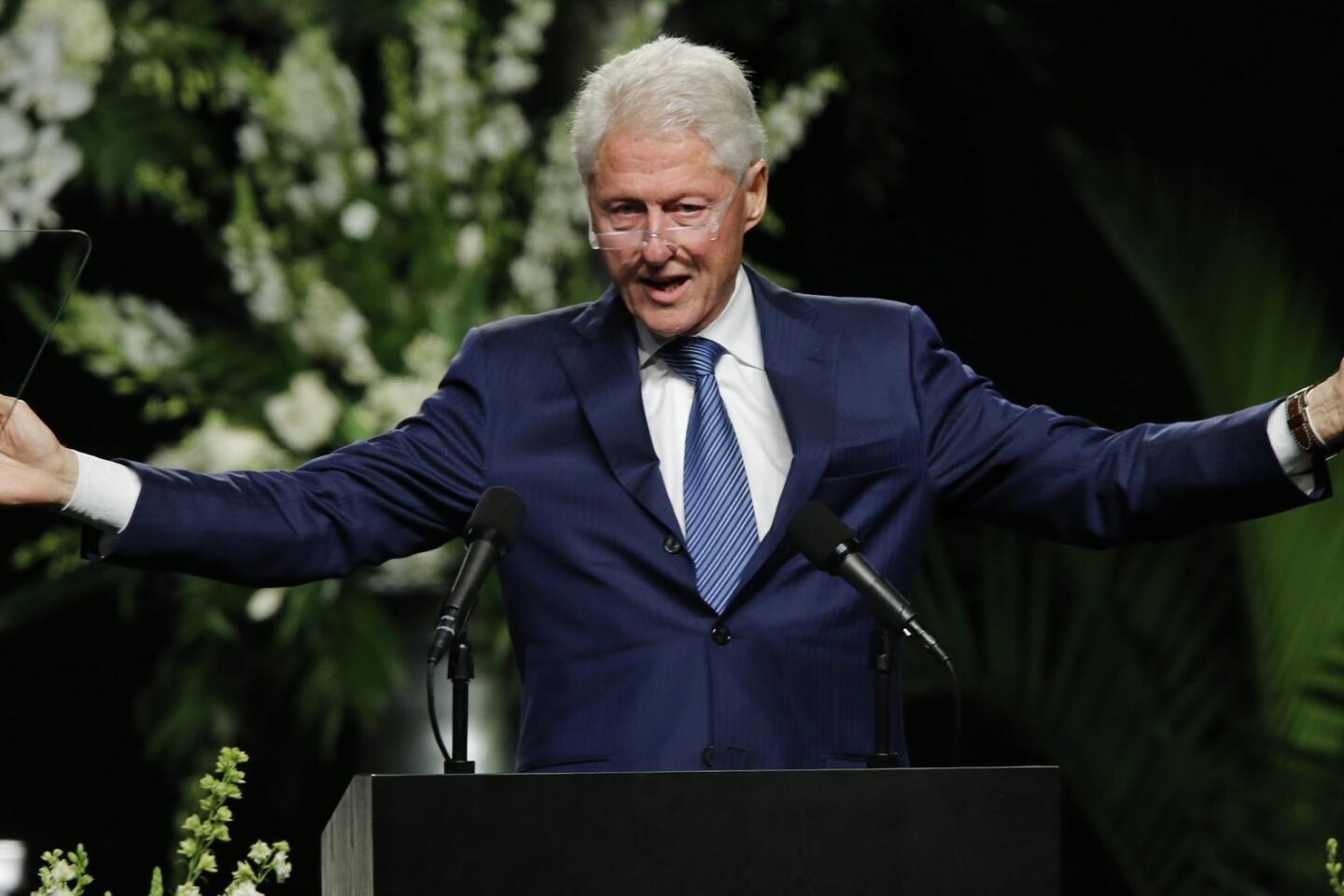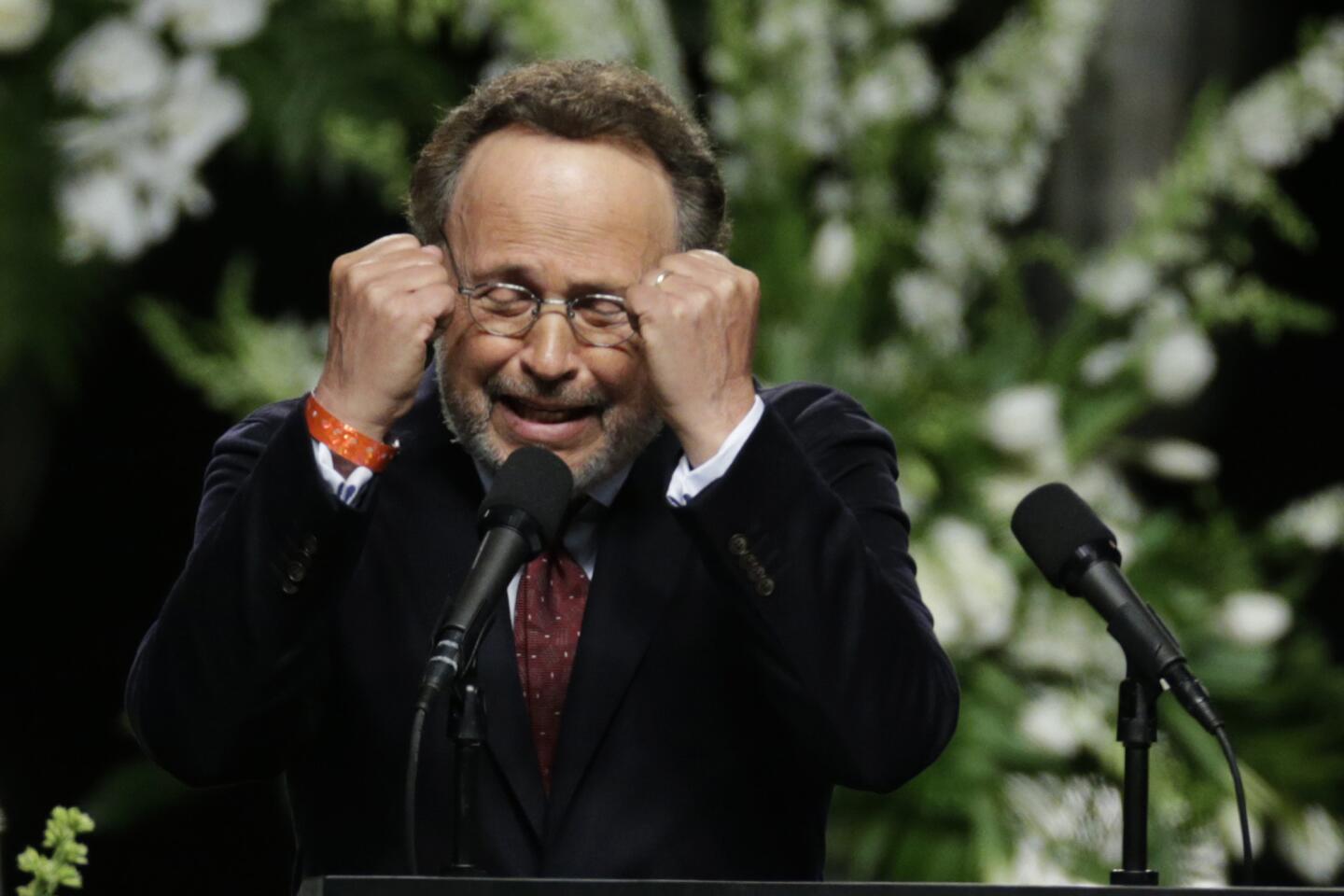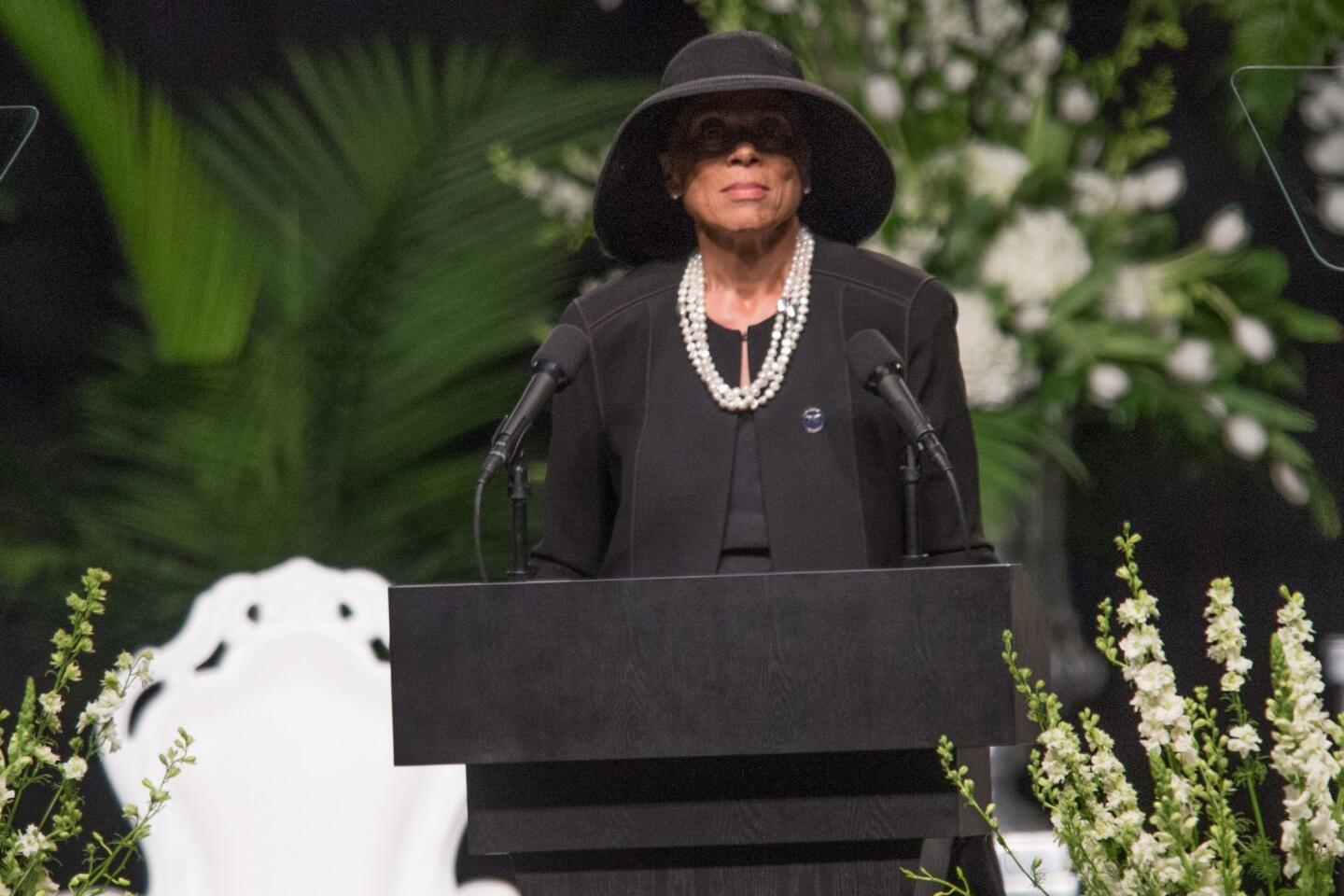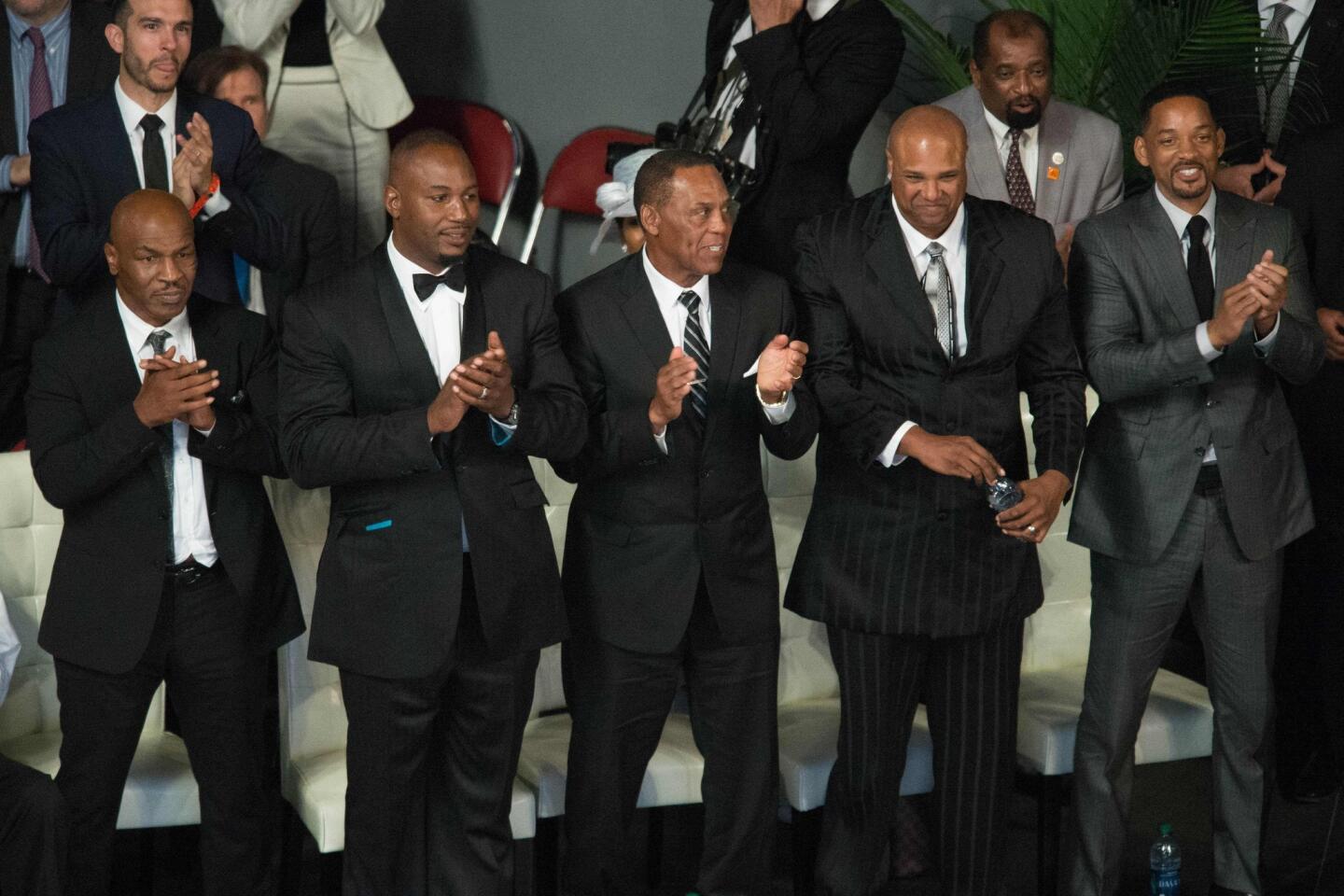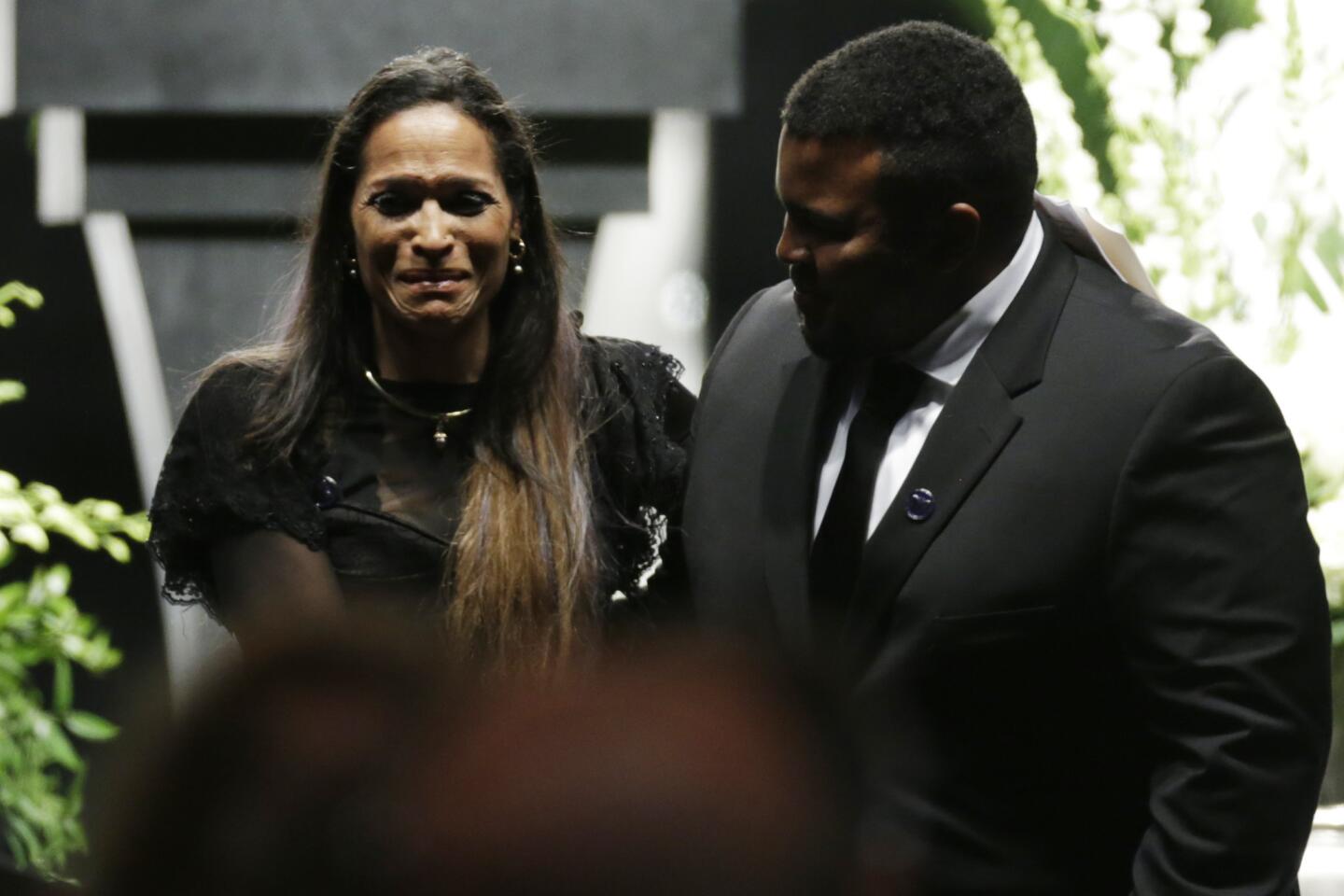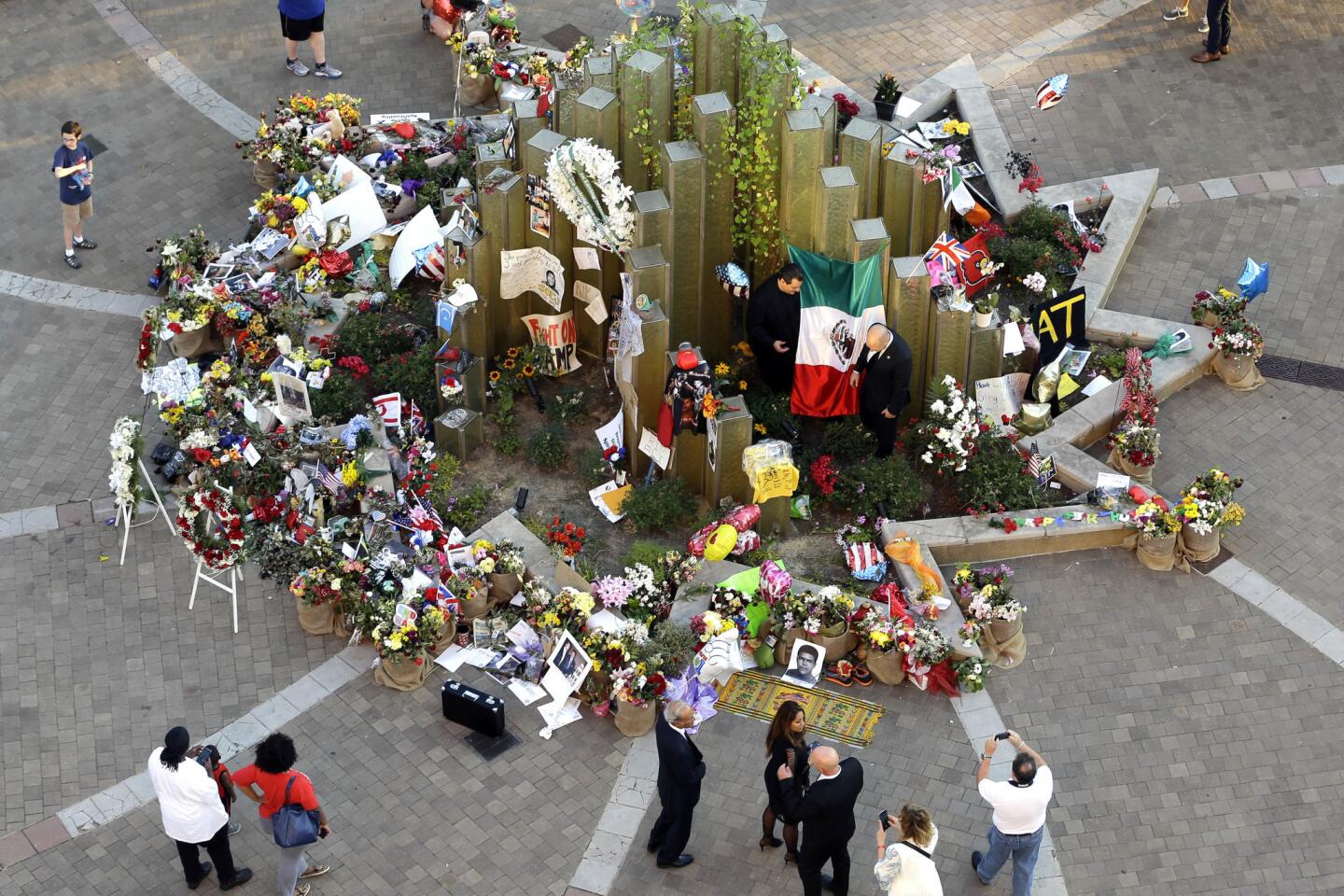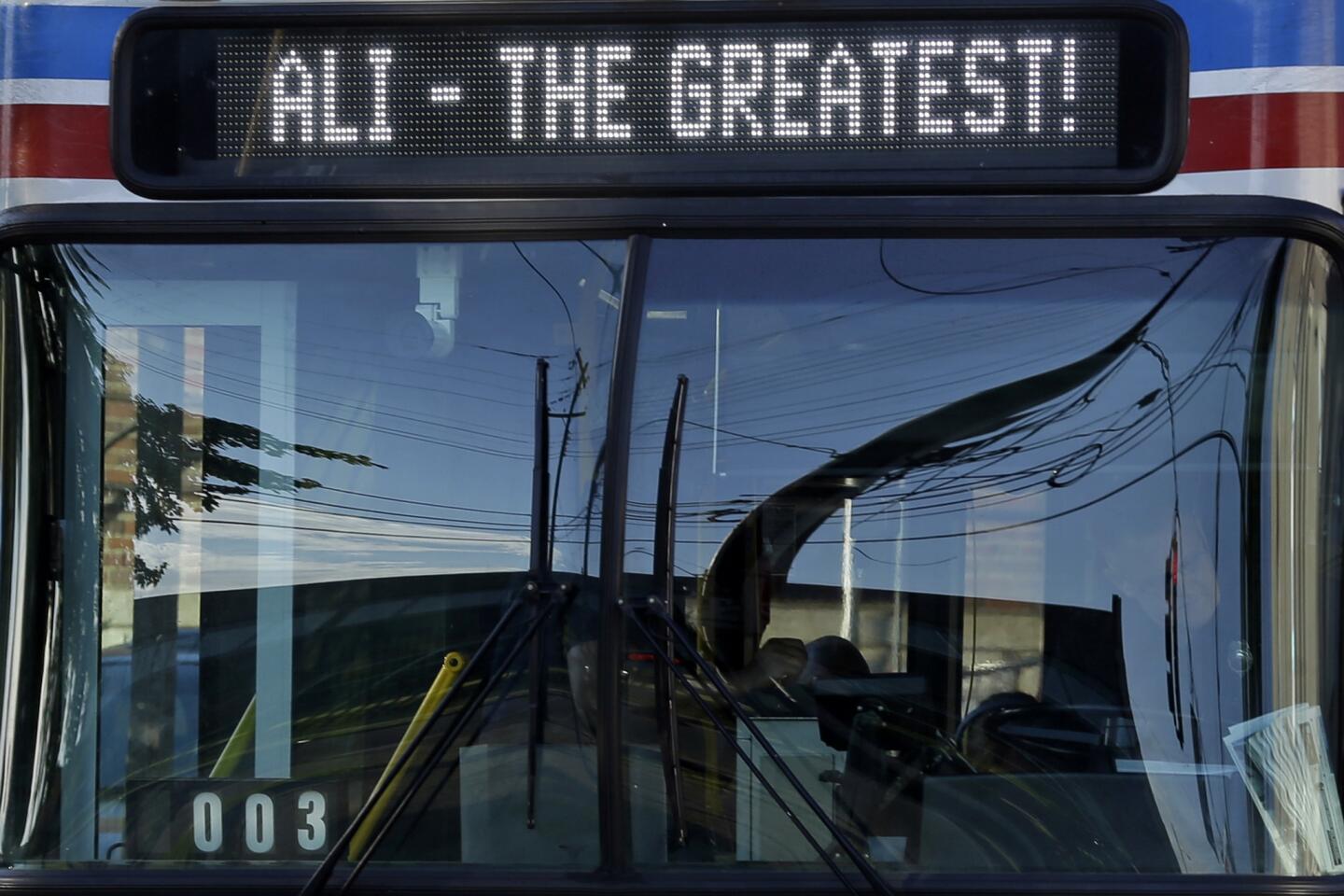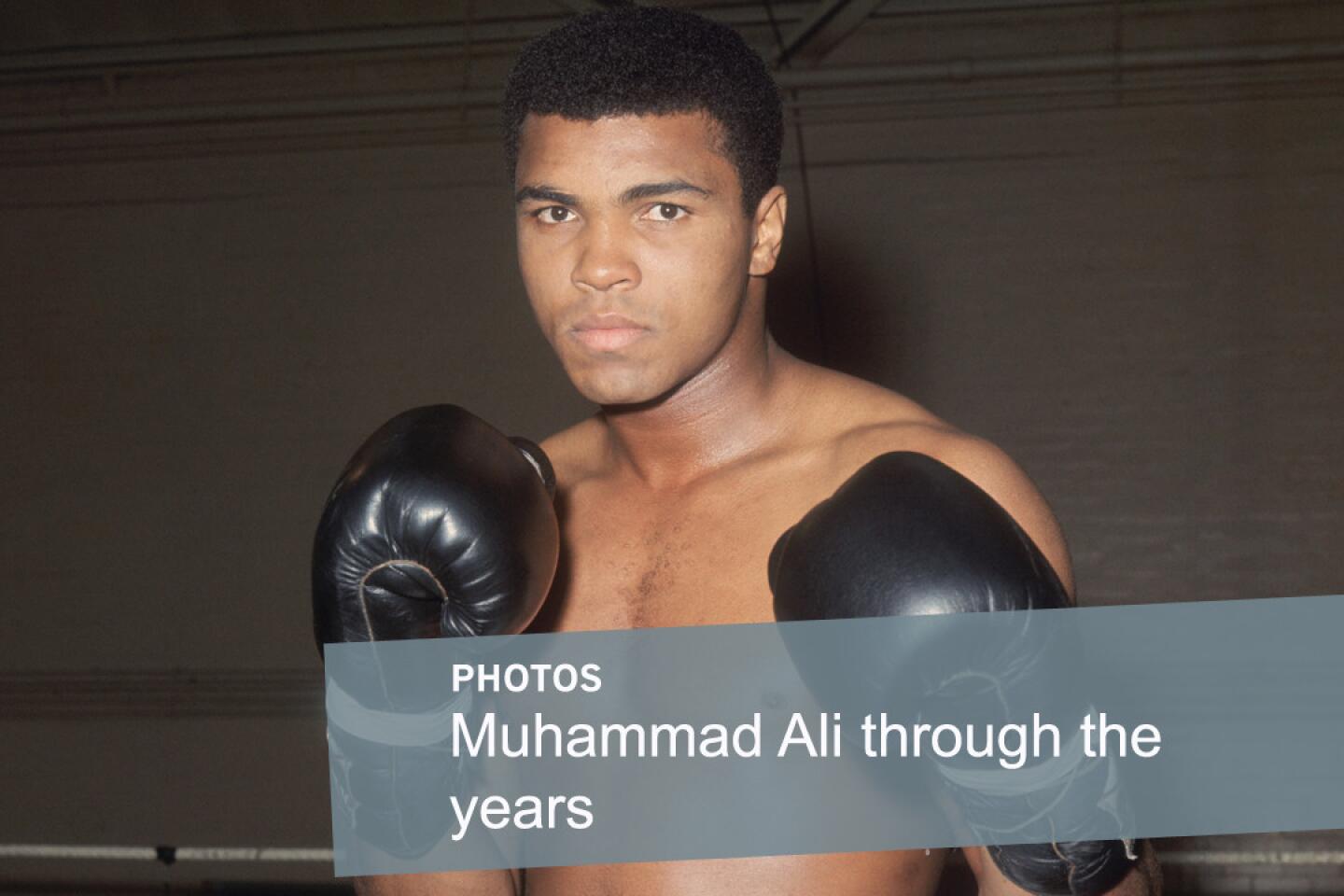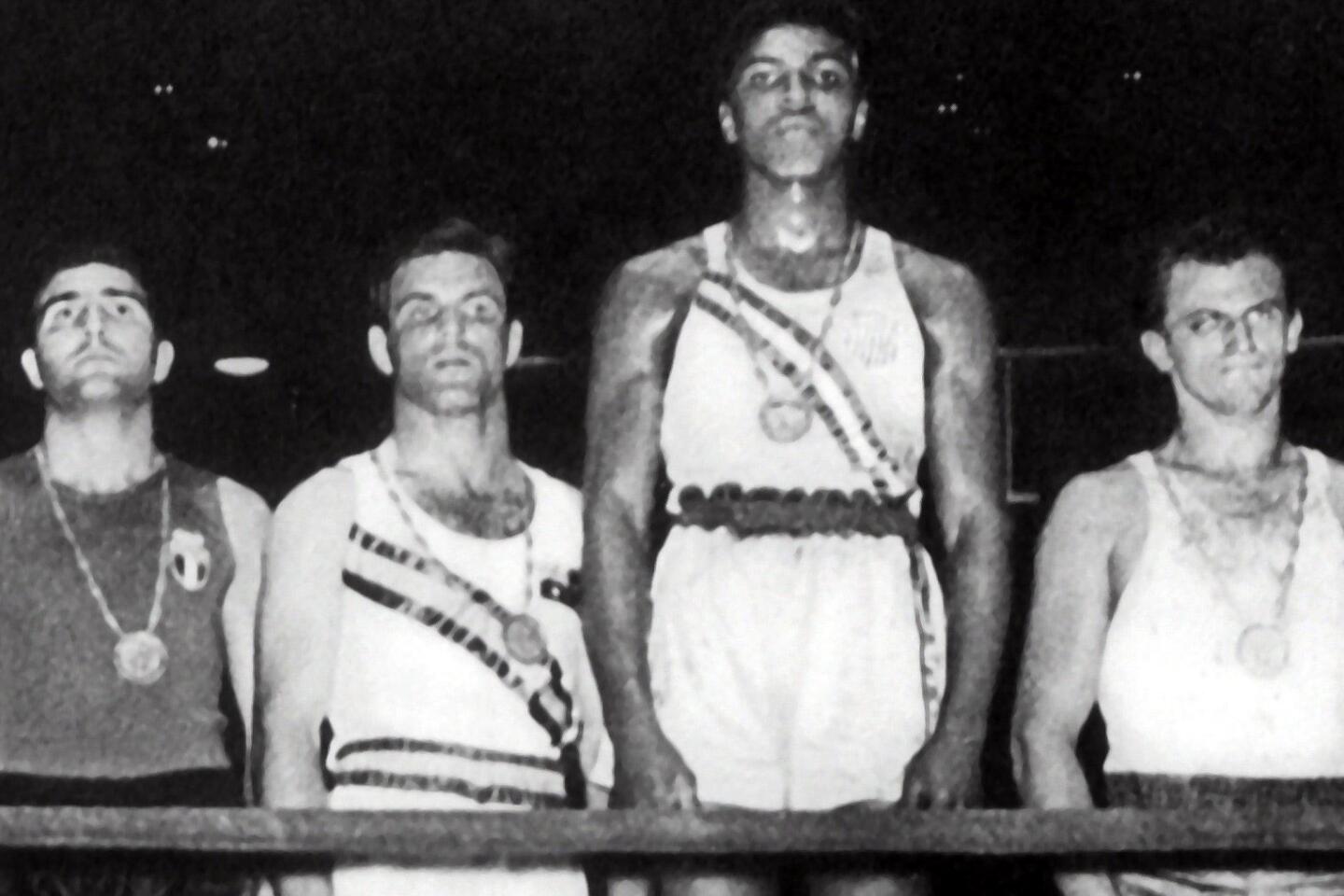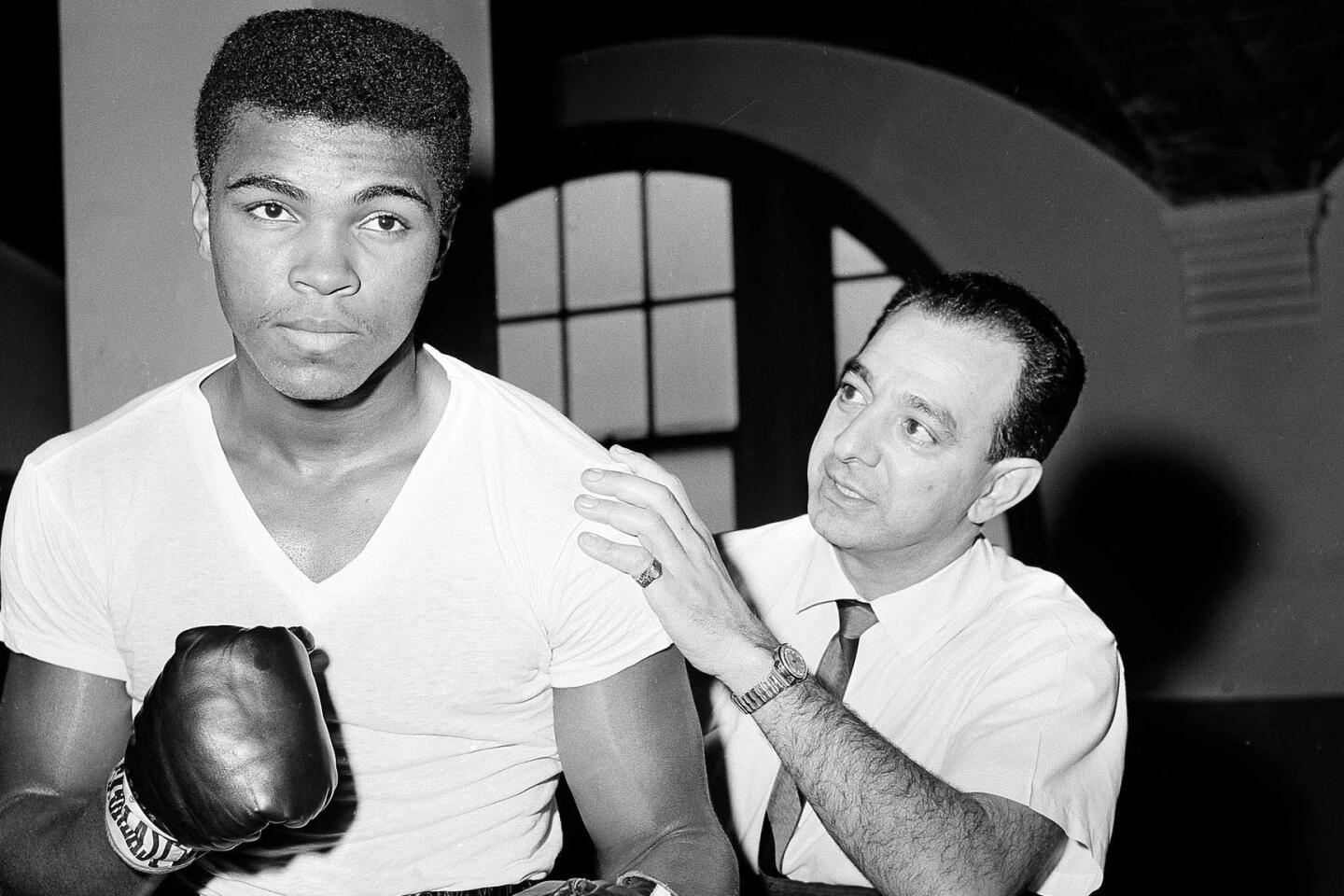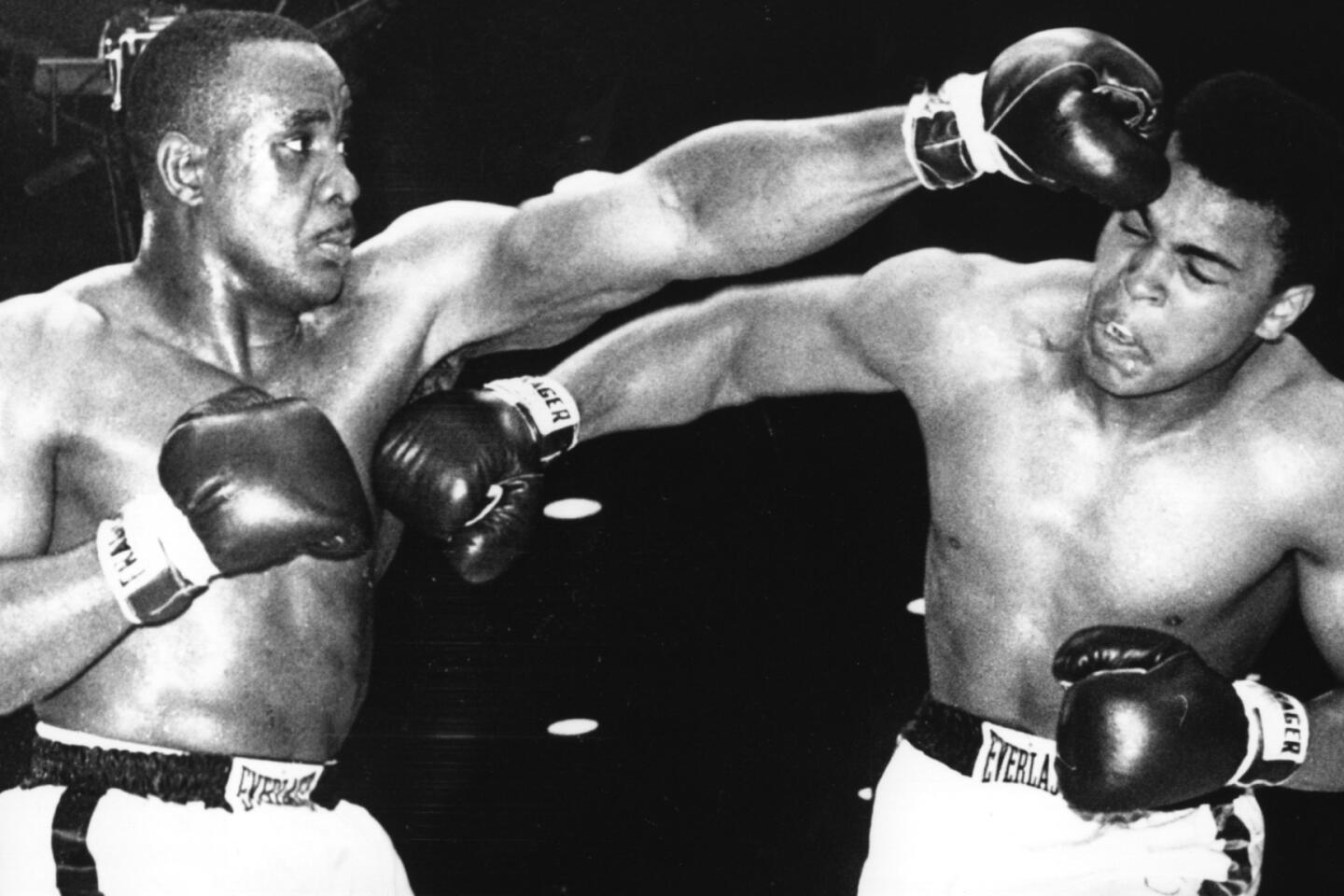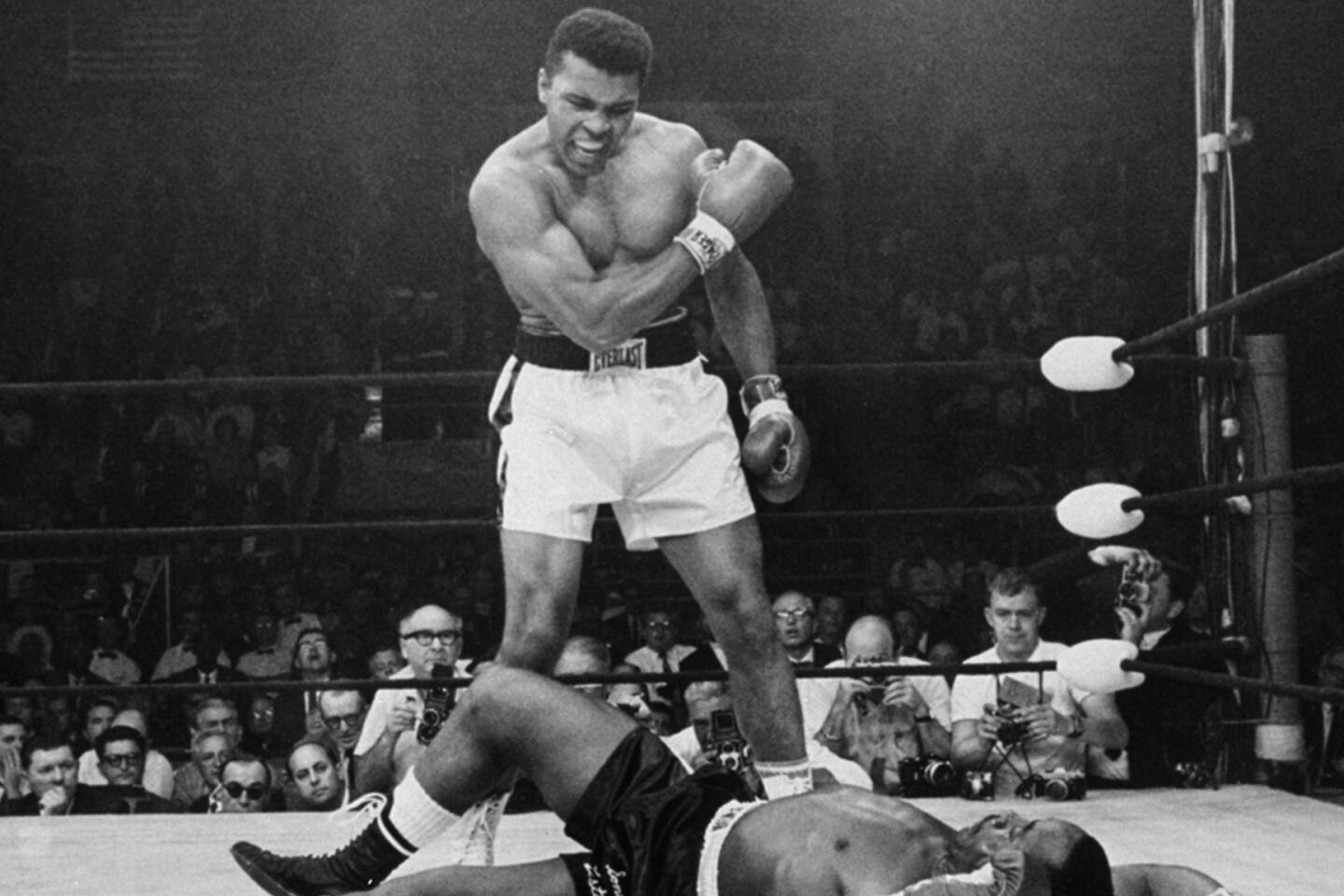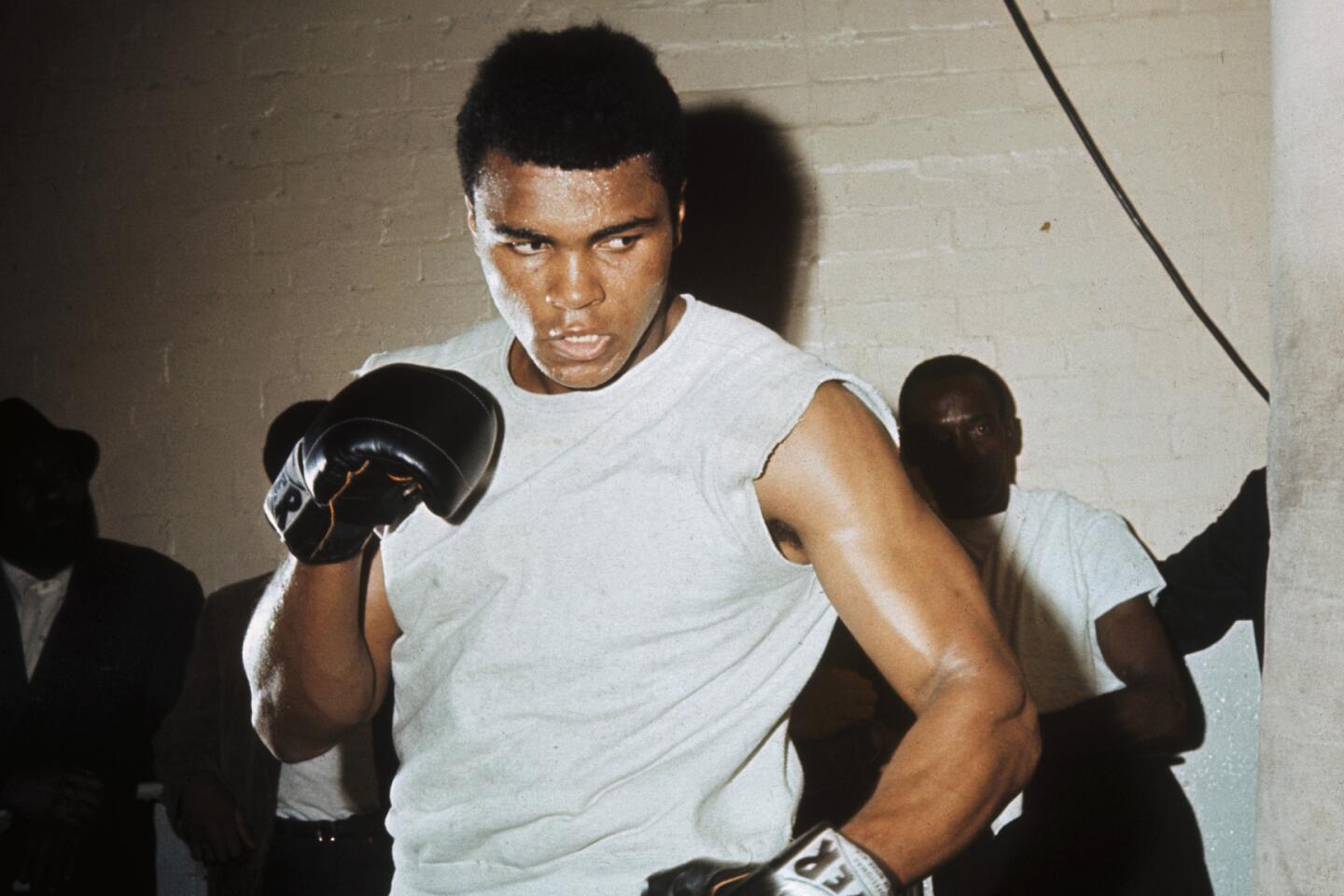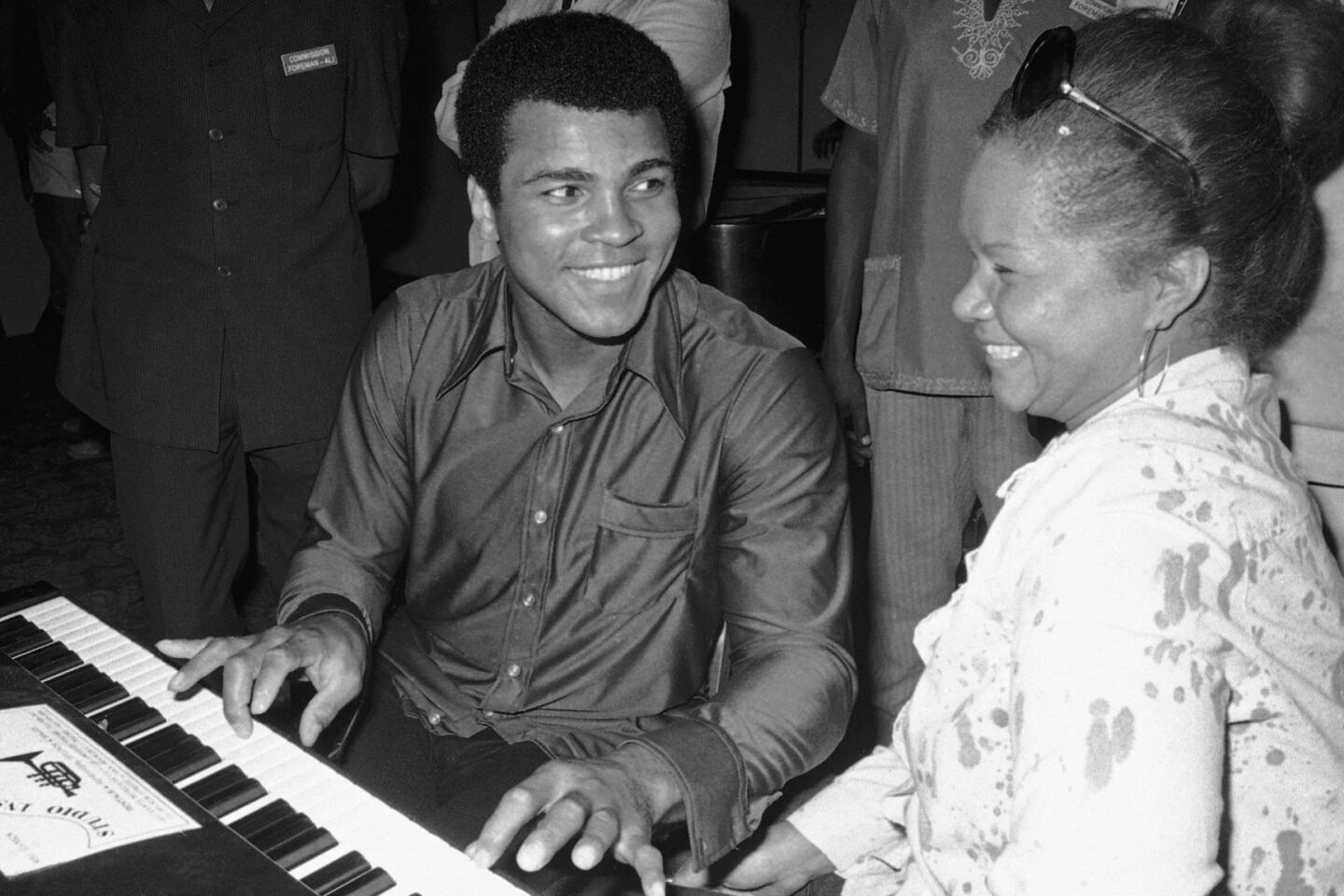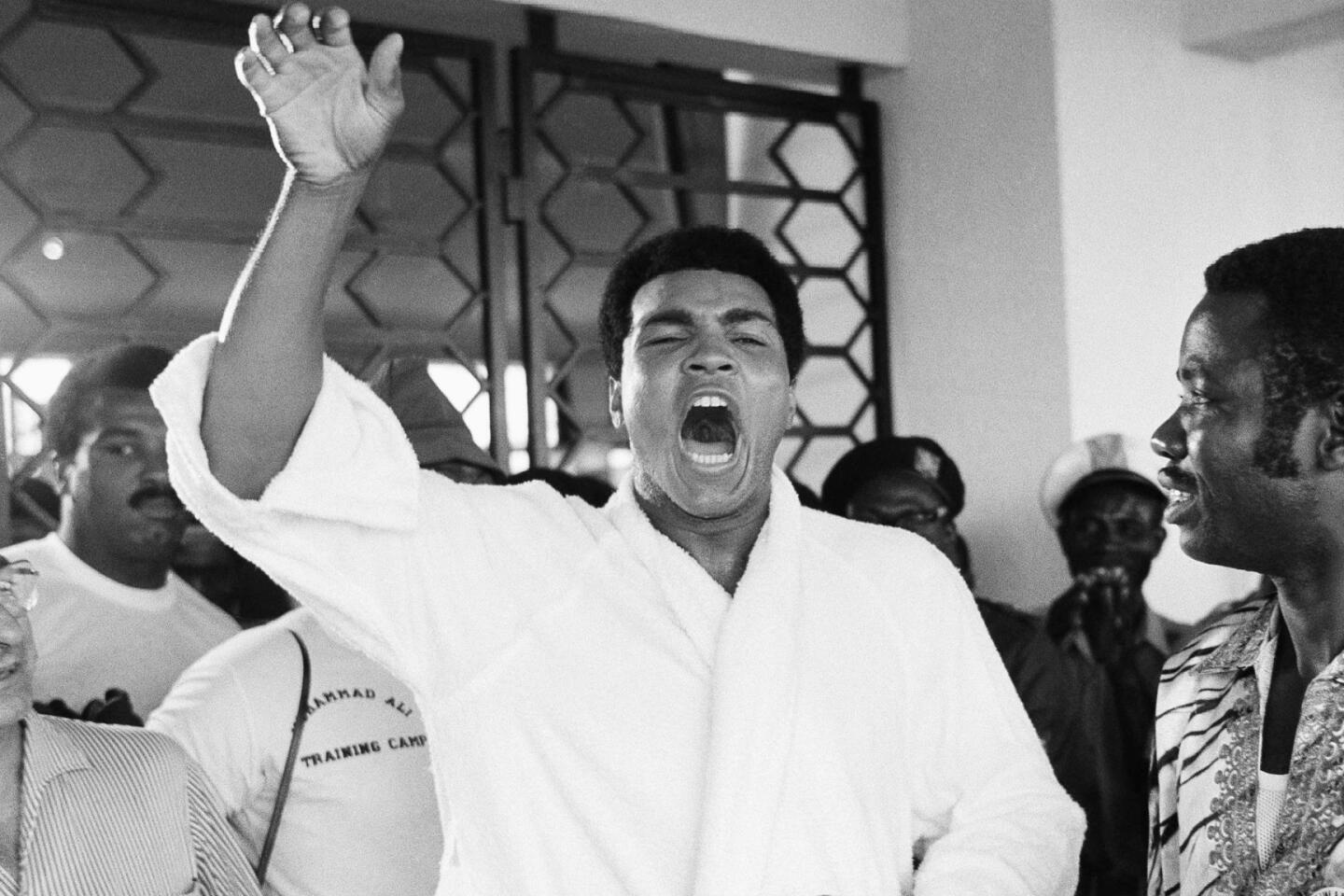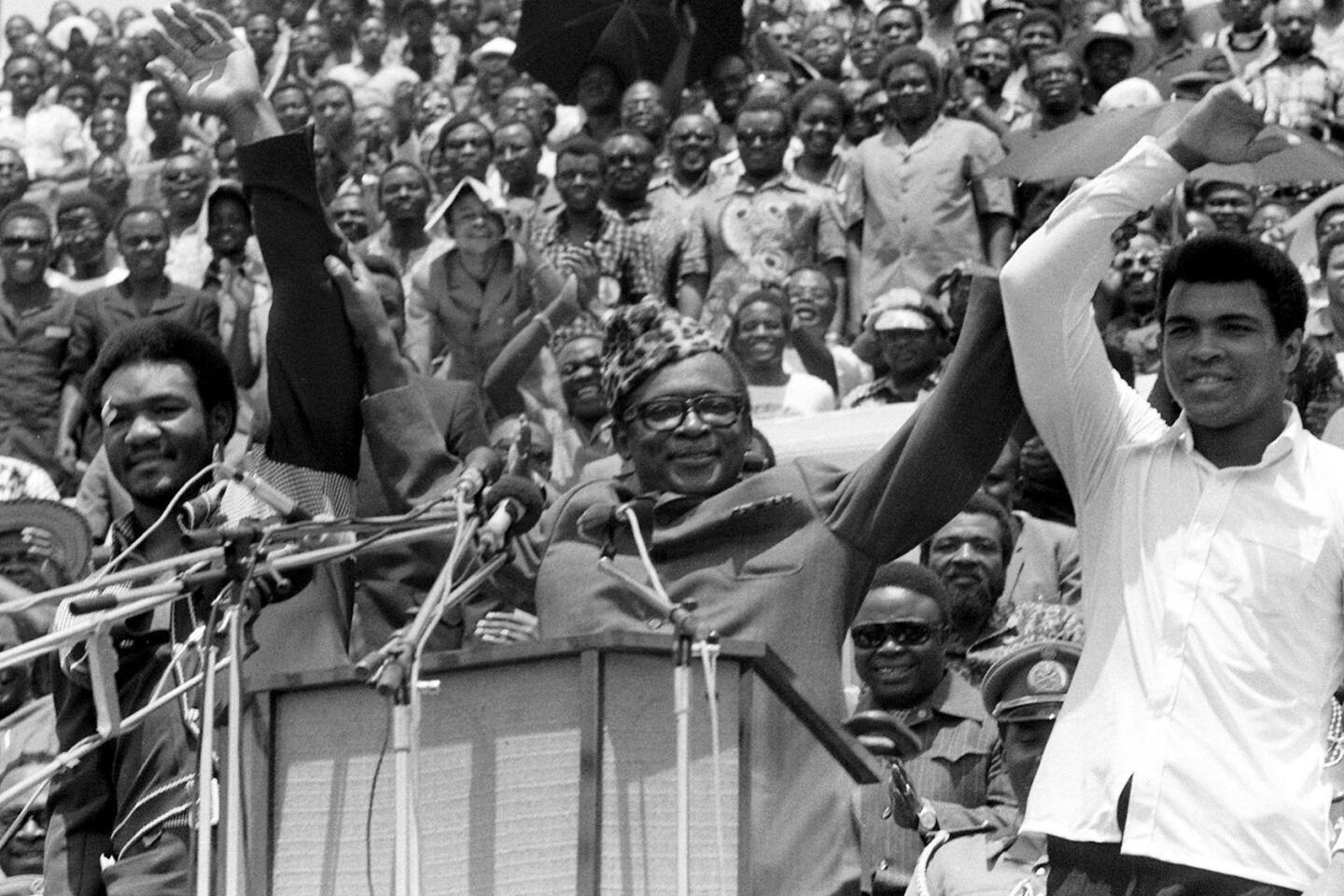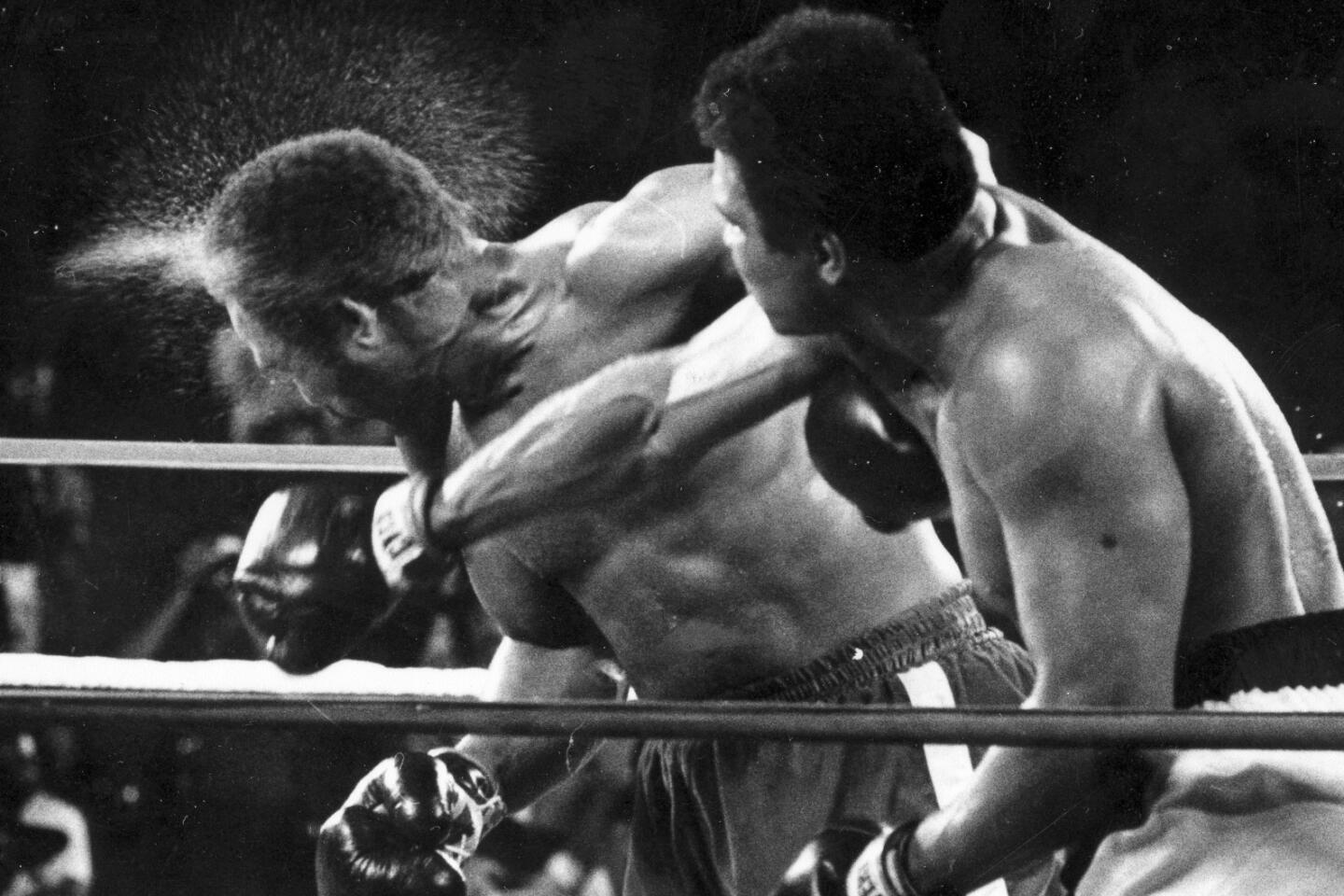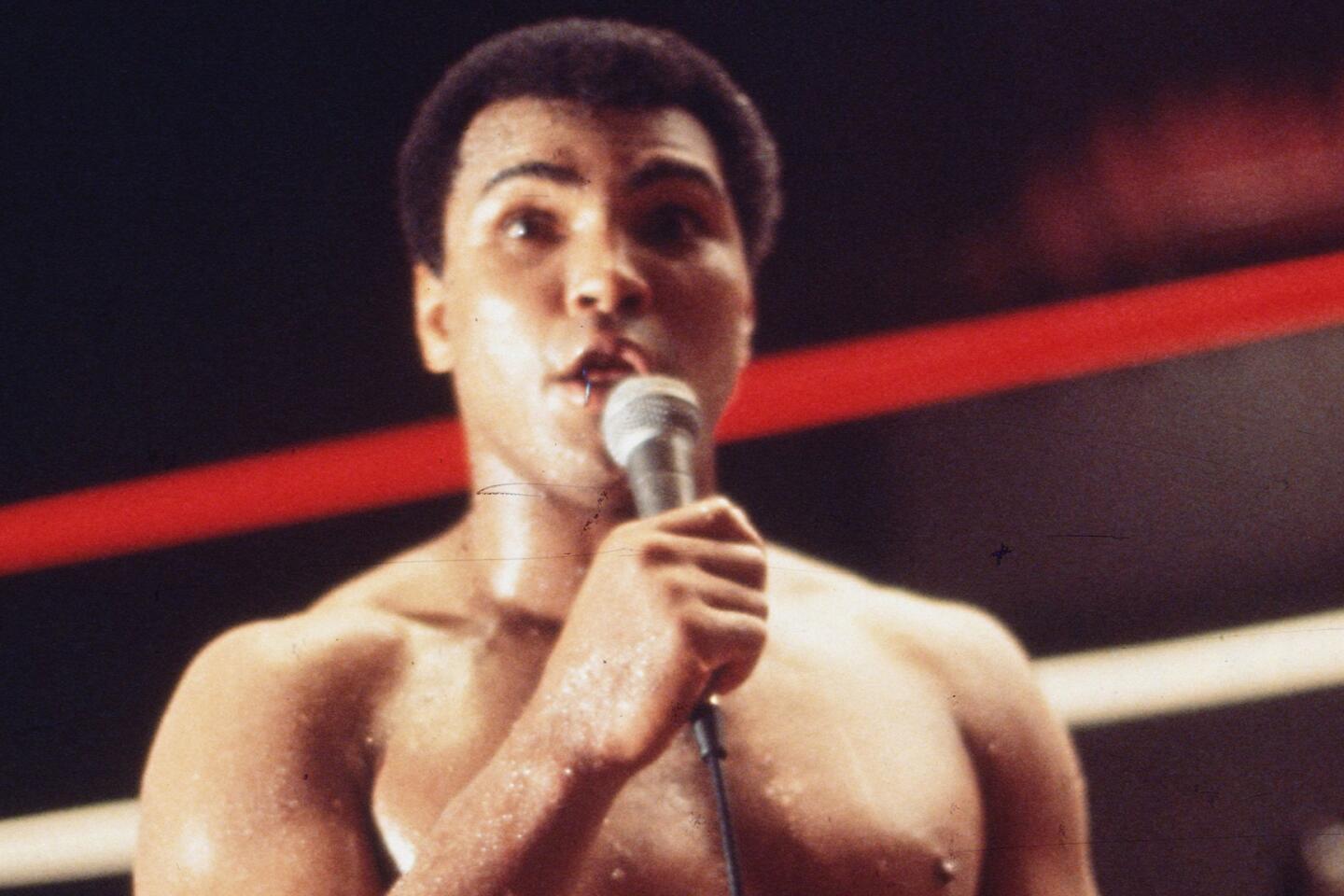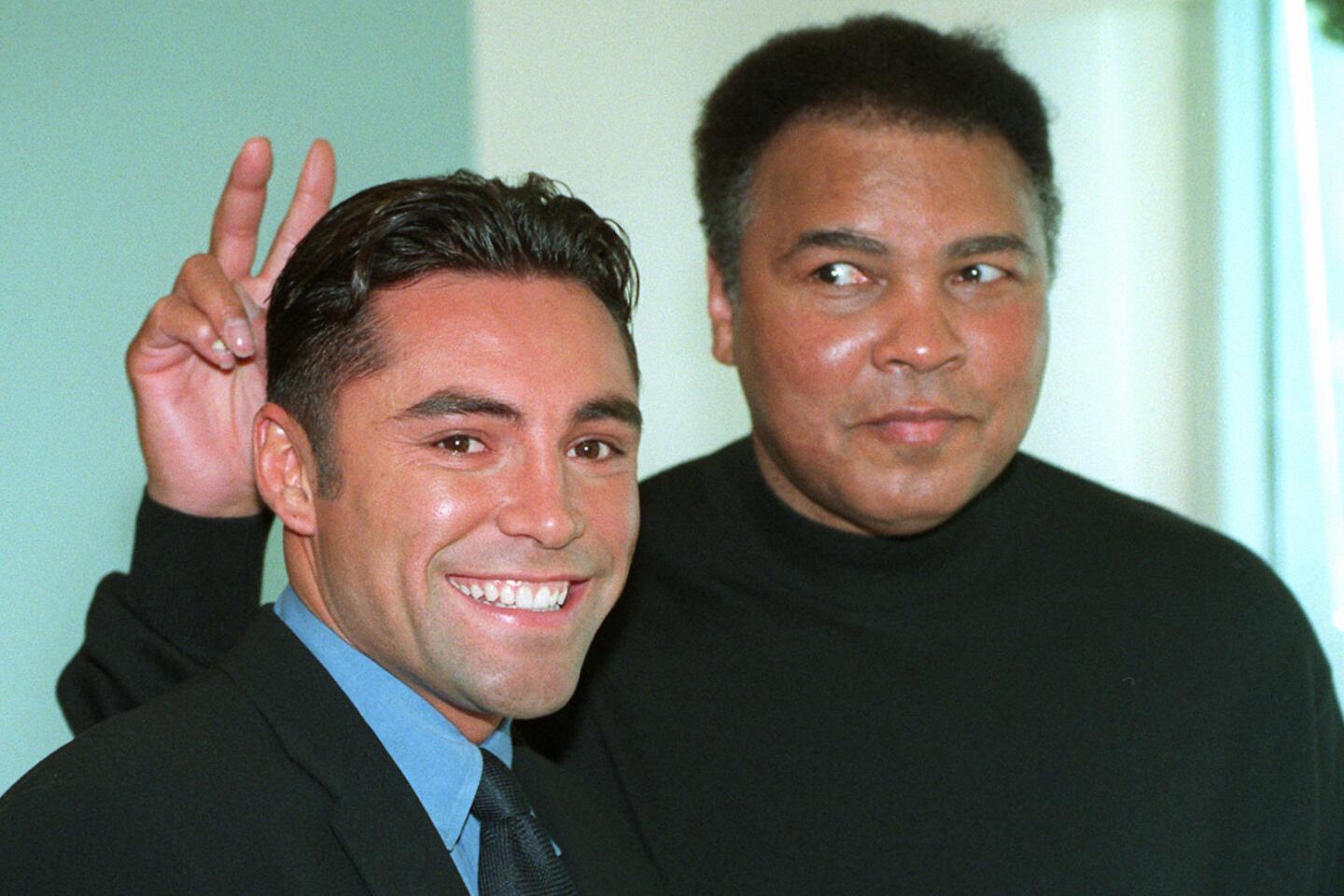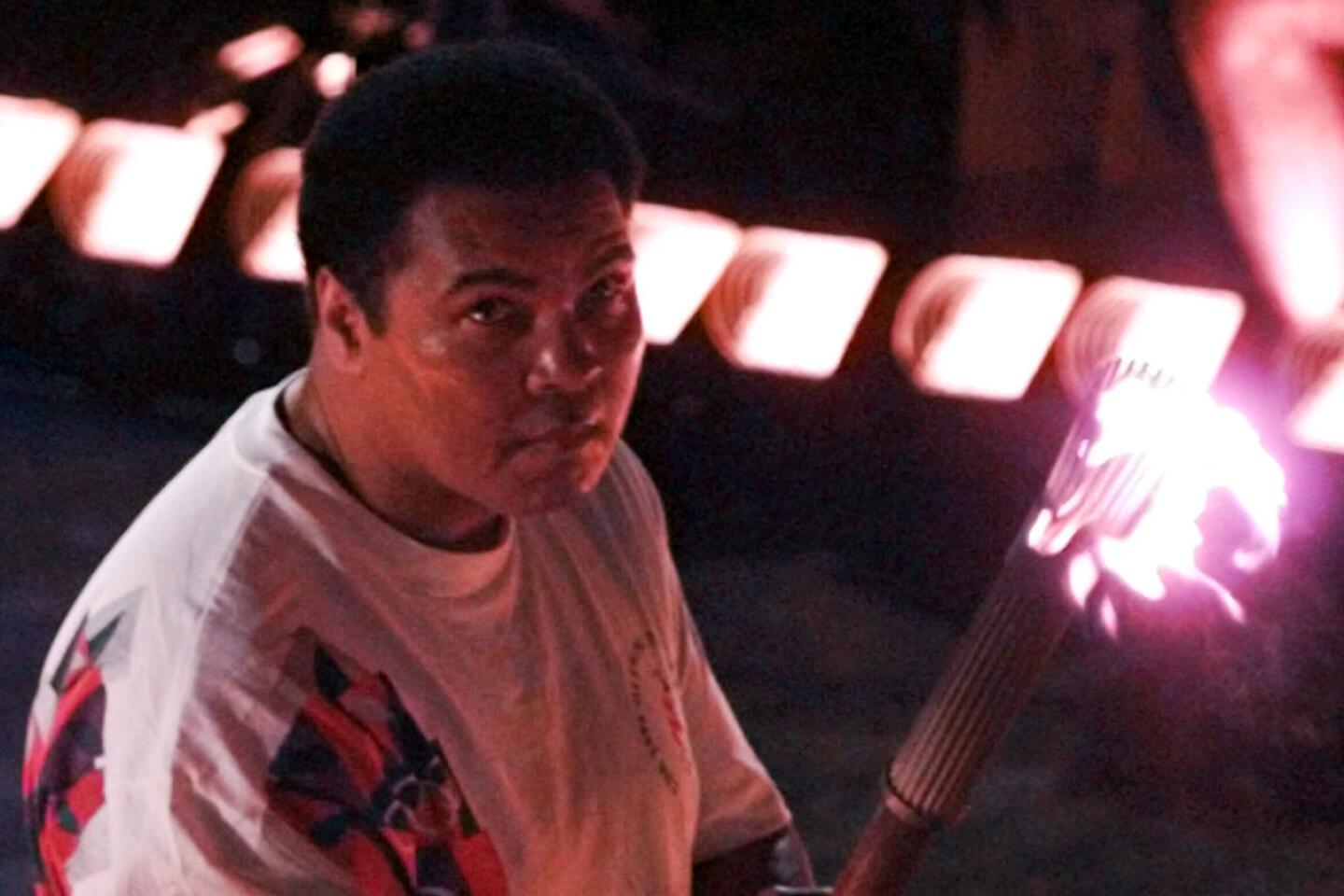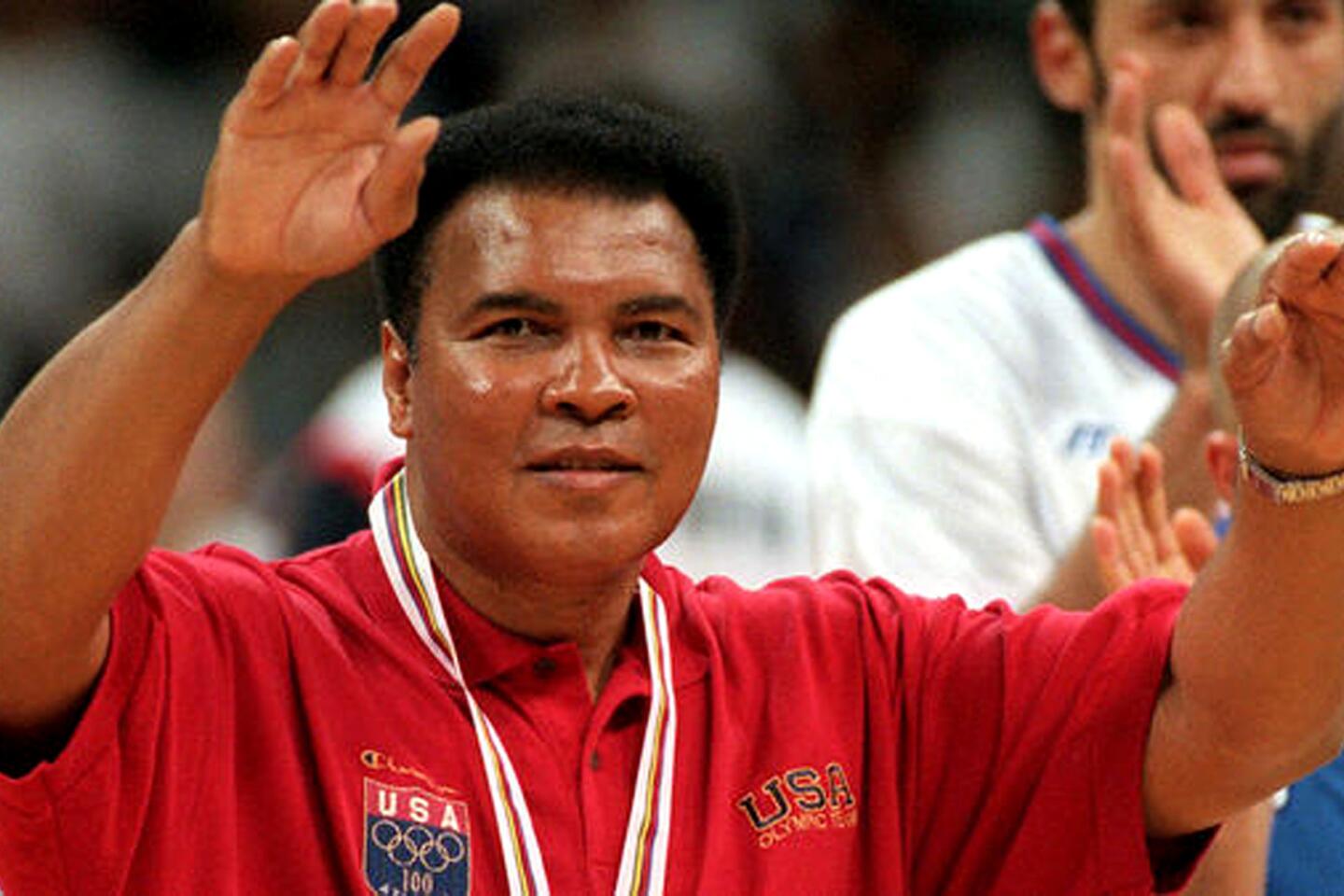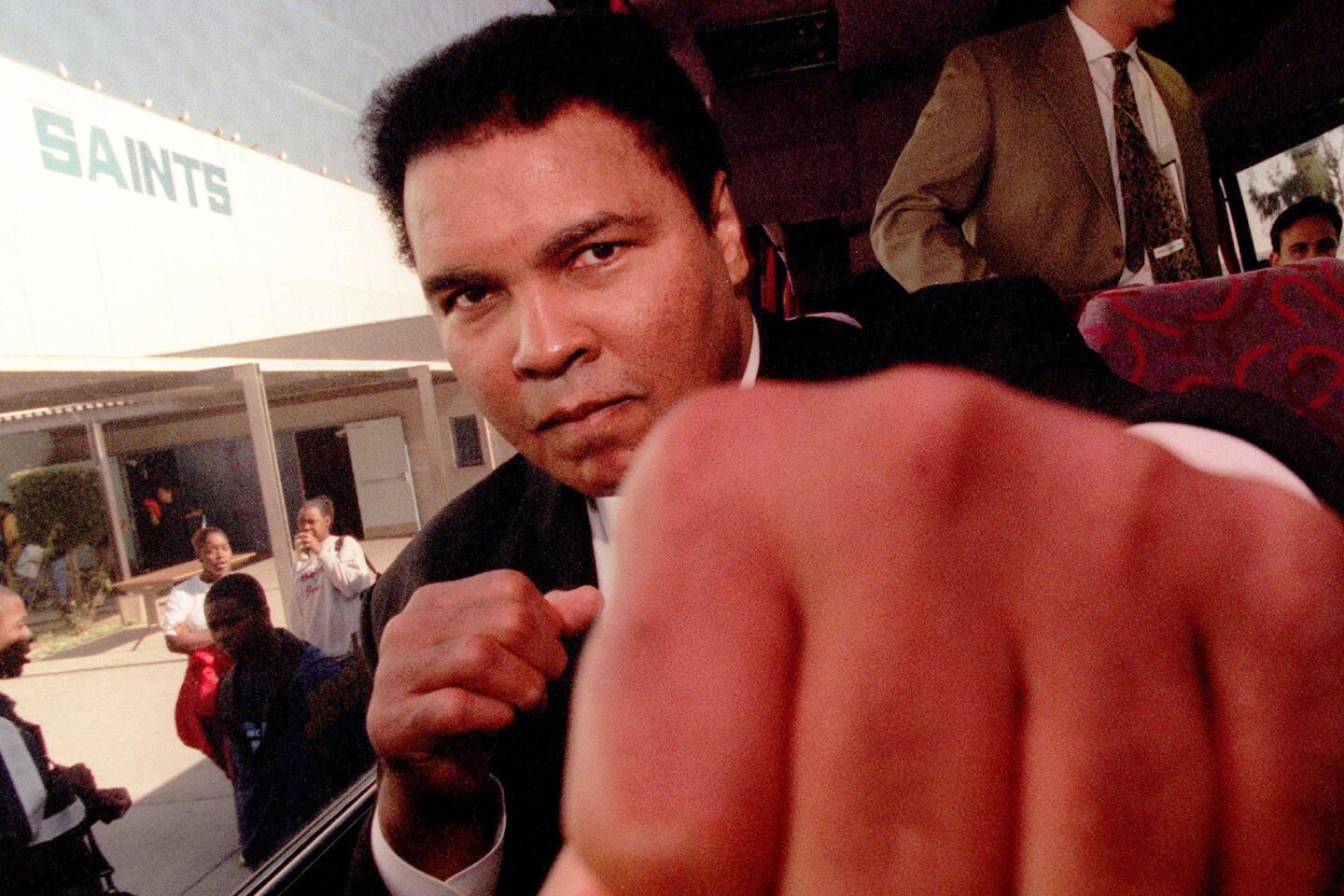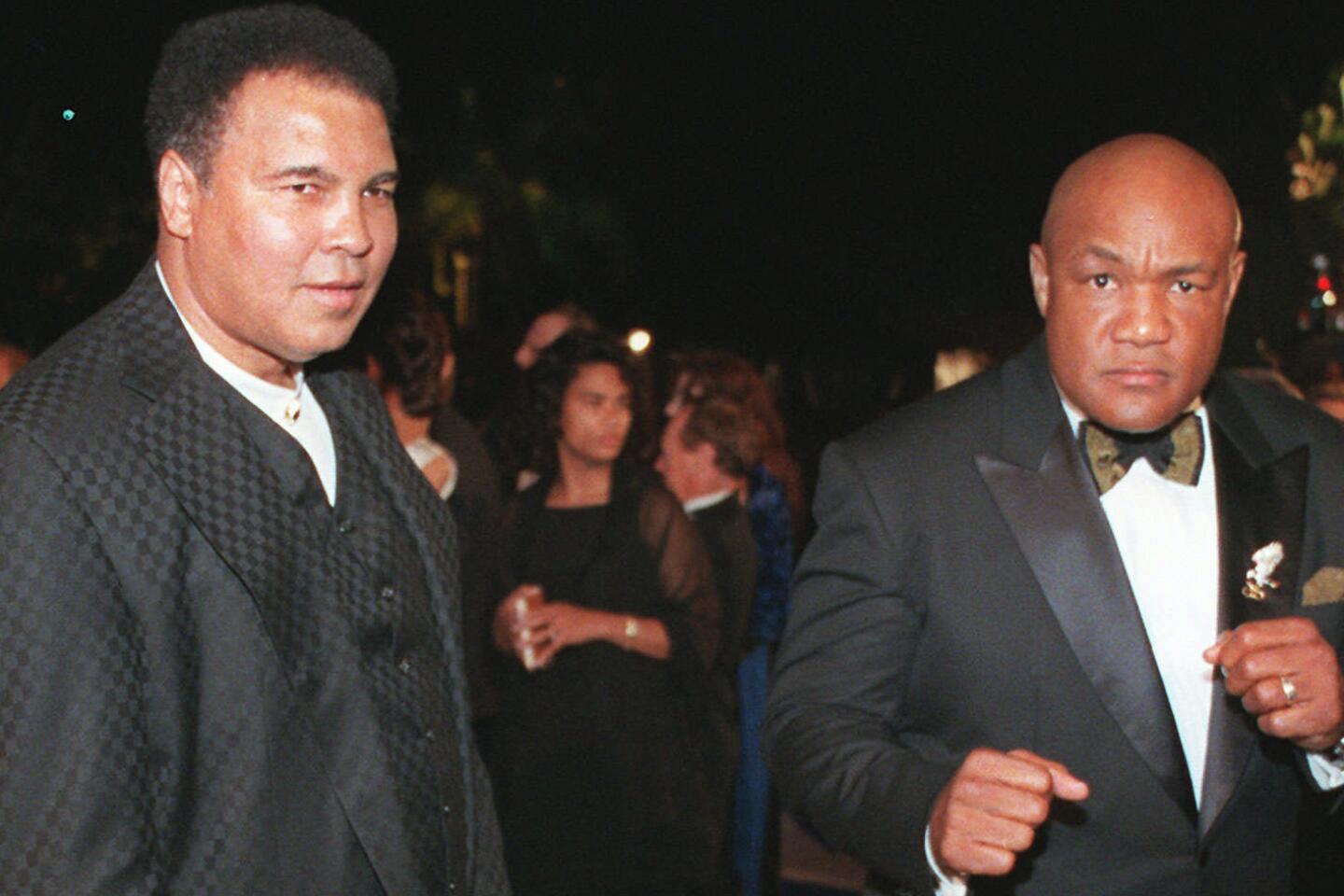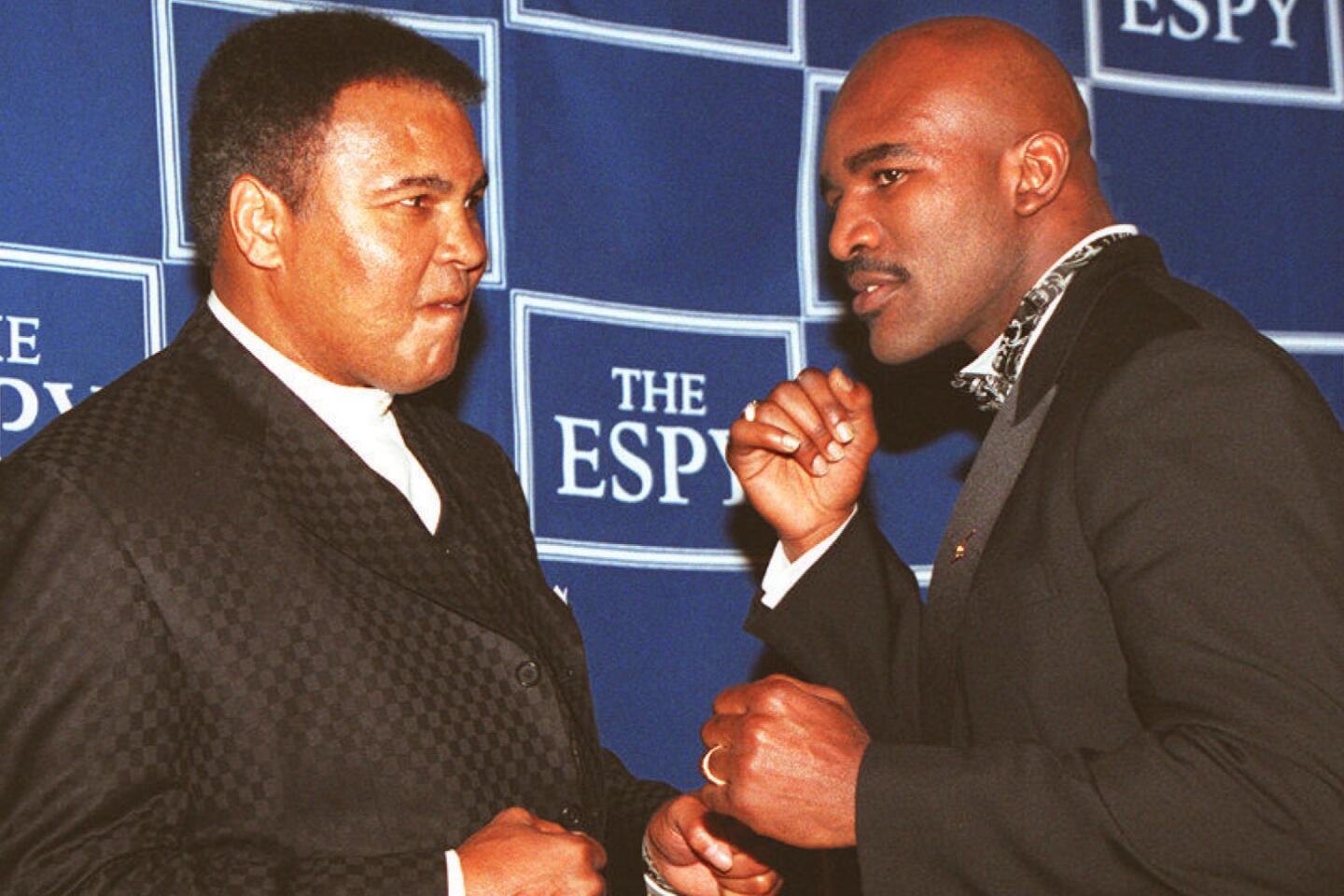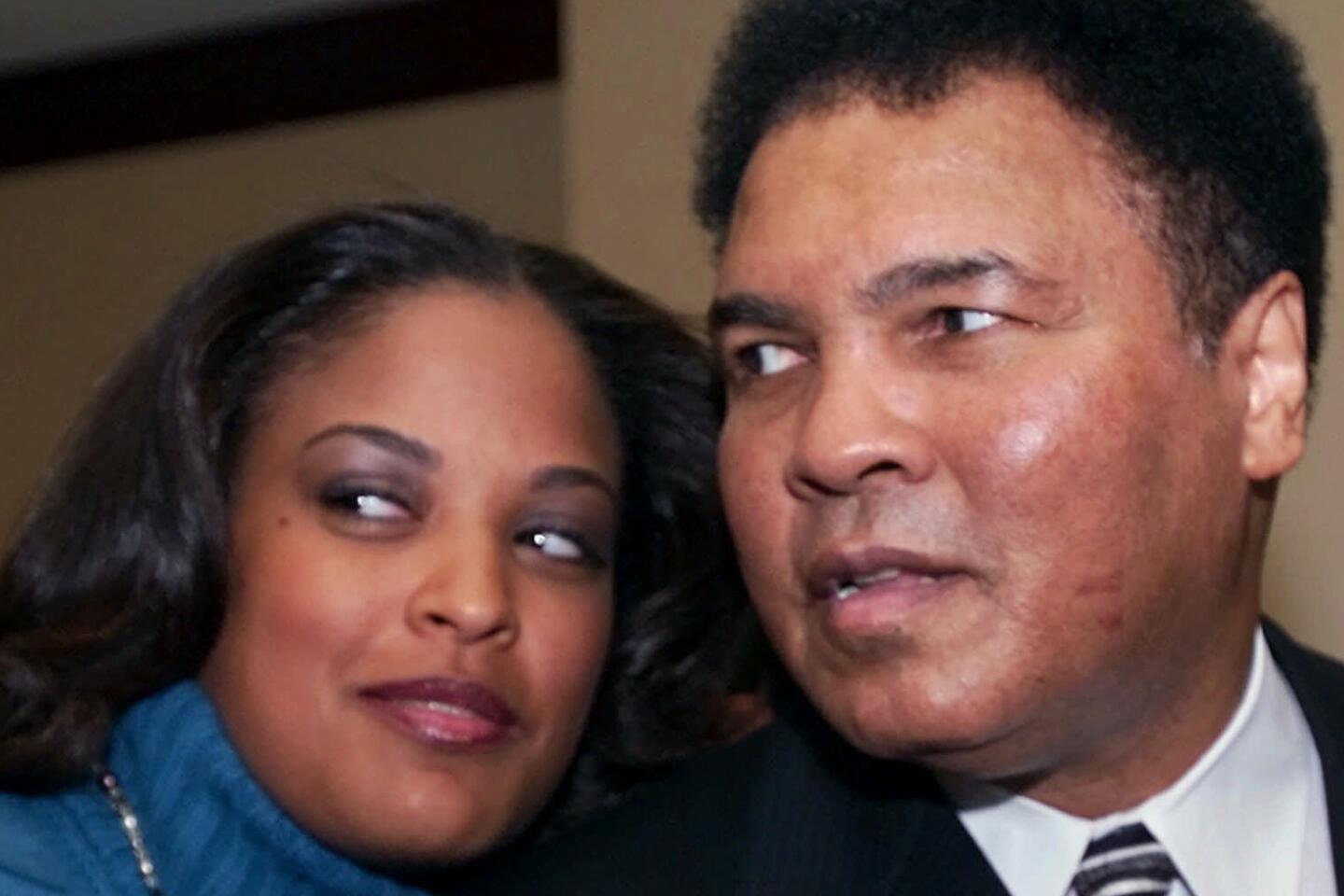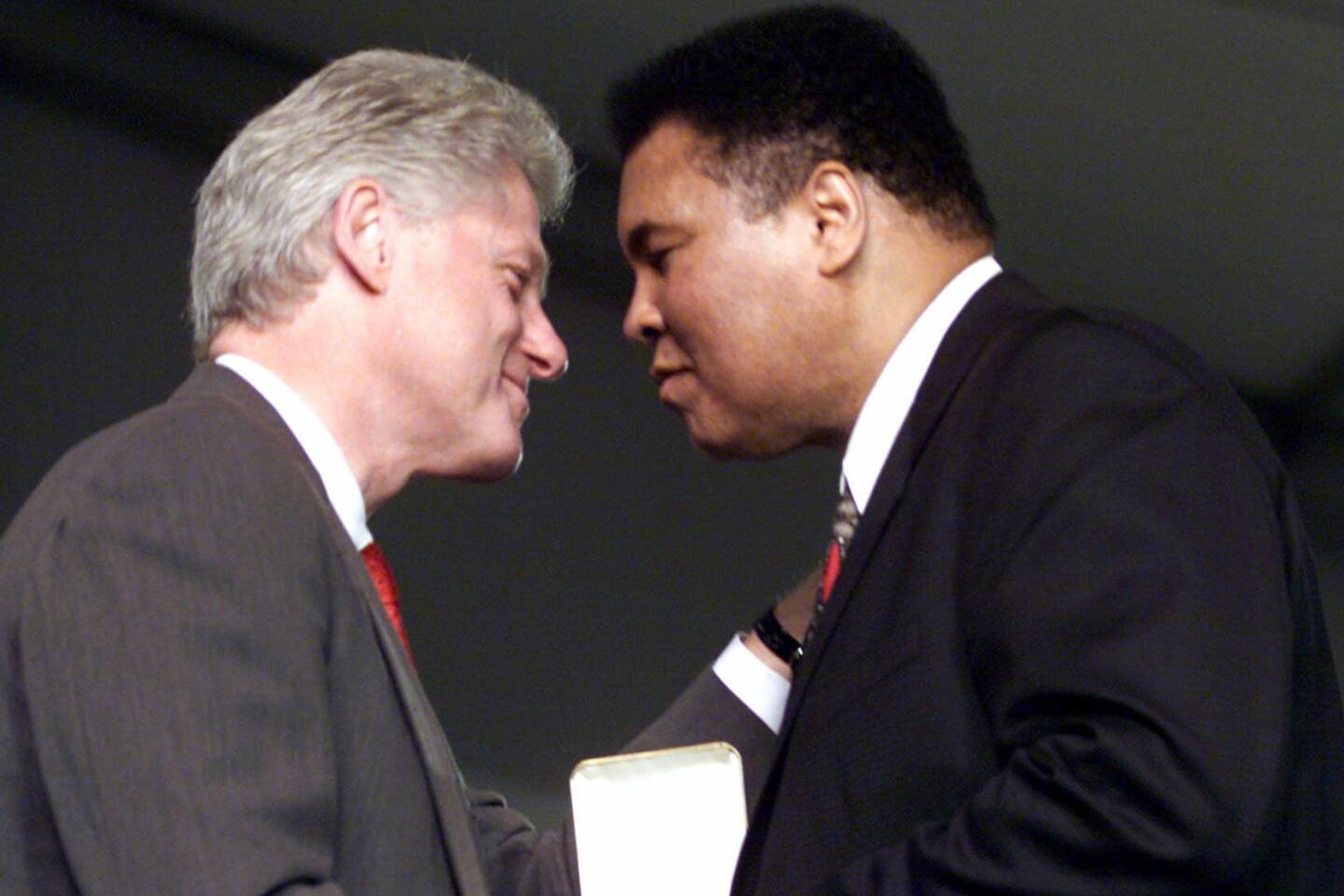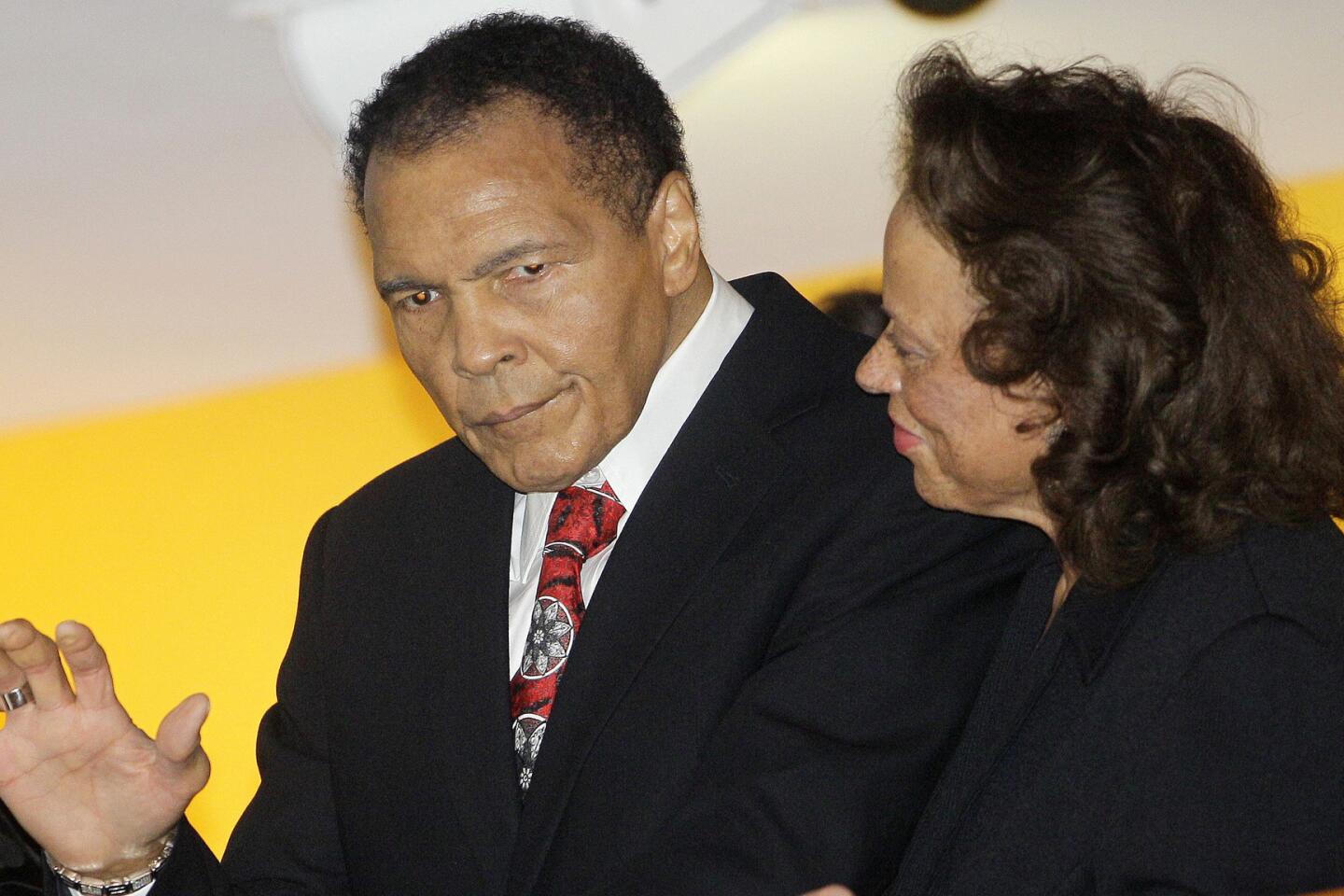Getting a first-hand glimpse inside the service for Muhammad Ali
- Share via
Reporting from Louisville — Arum, 84, a Hall of Fame boxing promoter, attended the Friday memorial service of Muhammad Ali, the first fighter Arum promoted. Arum told Times reporter Lance Pugmire his impressions about the ceremony.
I glanced across my aisle and saw Jim Brown, the Hall of Fame running back who 50 years ago introduced me to Muhammad Ali, marking the start of my boxing business and the beginning of my lifetime friendship with the most magical person I’ve ever known.
Ali’s need for someone to promote his 1966 fight in Toronto against George Chuvalo was the first of 26 bouts I worked alongside him – a stretch that took him through his defiance of the Vietnam draft to his epic 1975 “Thrilla in Manila” victory over Joe Frazier and more.
Brown said to me, “I’m proud I introduced you to him, and I’m proud of what you’ve accomplished with him and outside of that.” That made me feel real good.
Muhammad was a good man, and the mood inside the arena reflected that. I know he and his wife, Lonnie, had all this planned for about three or four years. A lot of the ceremony brought back great memories of him standing up for what he believed in. I always was taken aback by the goodness of the man, about how generous, wonderful and caring he was.
There were powerful speeches by clergy, one who drew a parallel to Louisville’s famous Kentucky Derby, and reminded us about the importance of betting on someone before a race, when they’re “in the mud,” instead of basking in their celebration when the roses are placed over their back.
Lonnie spoke from the heart. She reinforced the great lessons of Muhammad’s life, how it was a white policeman who steered him from trouble to boxing, how his Muslim religion turned him away from war, and how the rich and powerful in every country were drawn to him.
Muhammad told her many mornings, “I just want to get to heaven, and I’ve got to do a lot of good deeds to get there.”
As I sat there, I thought back to the multitude of experiences we had in the sport.
For me, it was obvious what was most memorable about him in the ring: The virtuoso performances he put on in the ring before his 1967 suspension – nobody could hit him or touch him. The only question was, “Could he take a punch?” the usual baloney that gets thrown out by boxing writers toward a great fighter.
Then, the fight in Manila against Joe Frazier. Ali was dominant. Then it looked like Frazier was going to knock him out. Then Ali turned it around in the 10th and 11th rounds and started beating the hell out of Frazier. That showed his tremendous resilience.
So, to me, there were two Ali eras in the ring.
The first one, through the Zora Folley fight in 1967, Ali was the most incredible fighter I’ve ever seen. He was even better than Sugar Ray Robinson. He could move, he could punch, he could throw, he could think. He was like an artist in the ring – at the height of his athletic prowess. Speed, timing, judging distance. You couldn’t hit him.
Then, after the three and a half years off because of his Vietnam stance, he came back rusty, because during those years, even though he didn’t drink, he didn’t train like a boxer would. He was different. He was slower. He didn’t fight on his toes like before, so he was getting hit and had to use all of his wile.
The guys like Frazier and Ken Norton who gave him real fights after his comeback wouldn’t have touched him through ‘67. The second Ali showed what kind of punch he could take because he didn’t have an alternative. He had lost his quickness. It didn’t matter. He was still great.
I had a tremendous audience in my section at the funeral and around it – Jim Brown, Larry Holmes, Will Smith, Katie Couric, Bob Costas, Pat Riley, Reba McIntyre, Chubby Checker, Lennox Lewis, Mike Tyson.
Tyson and Lewis were both pallbearers and they sat next to each other, the same guys who once fought on stage. But boxers are mostly very good people. Once they finish fighting each other, they become friends because they’ve shared an experience together that no normal people share. That’s why you see fighters embrace each other after they fight, almost as if they love each other.
Honestly, now that Ali’s gone, it’s a relief. I tell you, it’s probably selfish on my part, but to have seen him in the state that he was in the last couple of years tore me apart. To see this great athlete and person reduced from what he had been to be really laid low by Parkinson’s.
He could barely move, and you weren’t really sure he remembered you -- that really tore me up. I hated it.
Now that he’s passed on, he’s at peace, and the memories of what a great person he was, what a life he lived, are still fresh.
I thought President Clinton expressed it well, how he’ll most recall Ali in three parts. In his boxing prime. Of how Clinton “weeped like a baby” watching Ali struggle to walk to light the Olympic flame in Atlanta in 1996, and his public service. President Clinton really nailed it.
And that was a great, humorous, moving speech by Billy Crystal. He told of how they laughed at Howard Cosell’s funeral after Ali asked Crystal if Howard was wearing his hairpiece. Ali whispered to Crystal after a 1979 boxing tribute at the Forum, “You made my life better than it was,” and Crystal said today, “Didn’t he make all of ours better? Life is better when you build bridges between people, not walls.”
More to Read
Go beyond the scoreboard
Get the latest on L.A.'s teams in the daily Sports Report newsletter.
You may occasionally receive promotional content from the Los Angeles Times.
